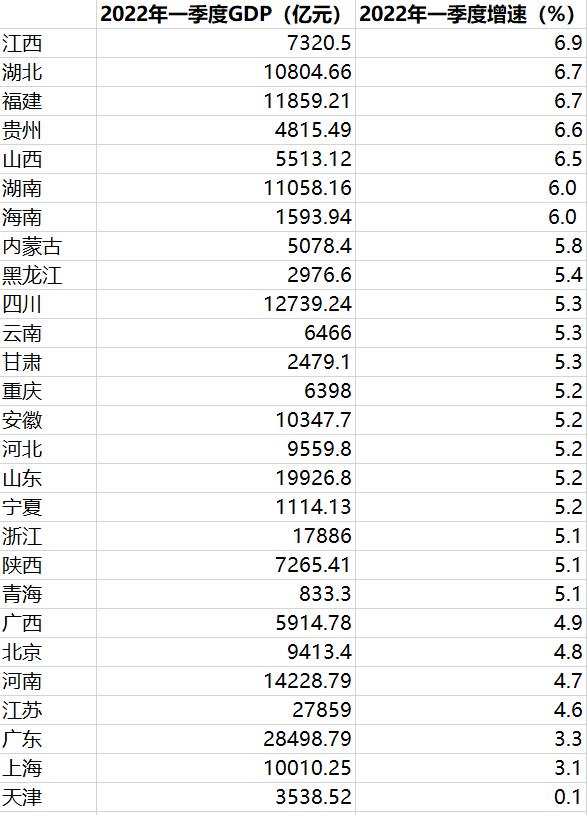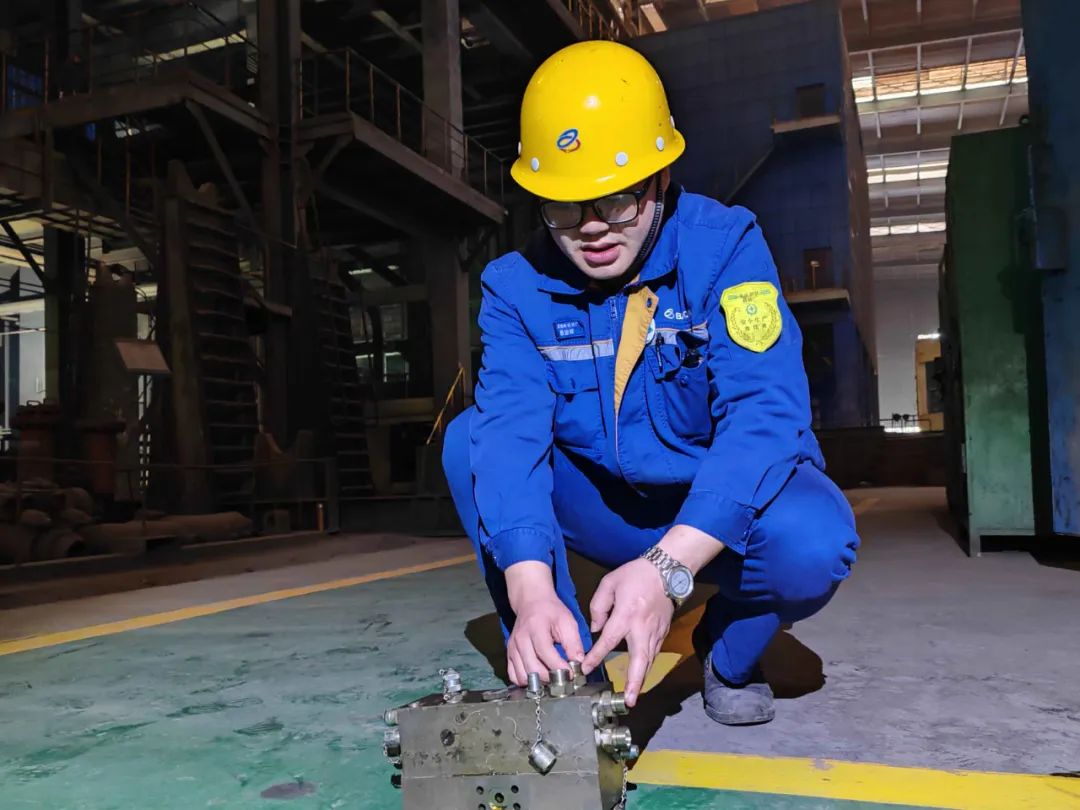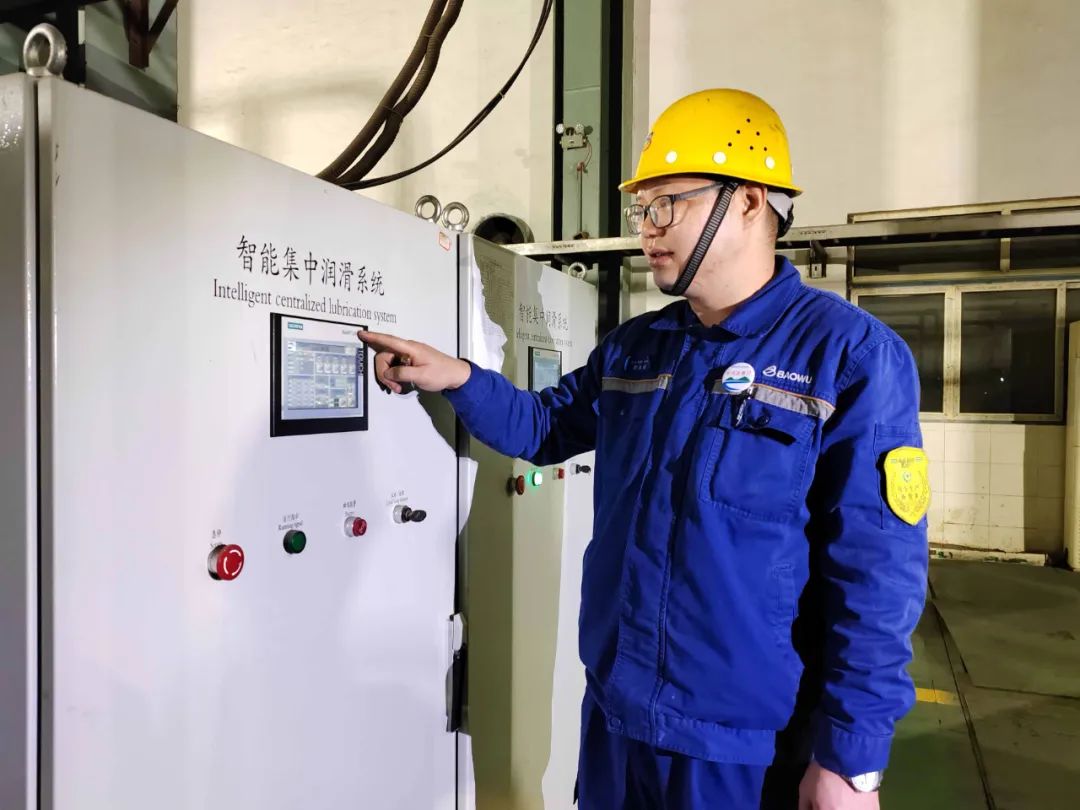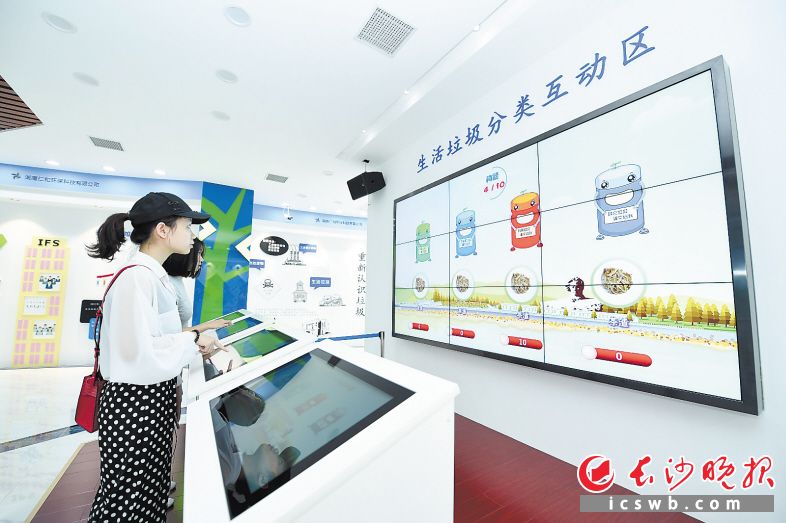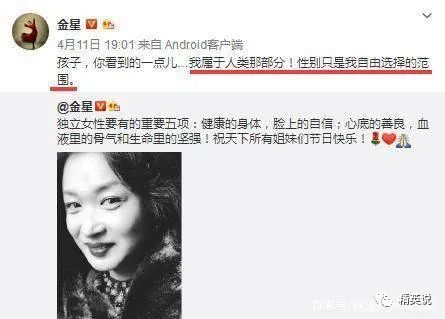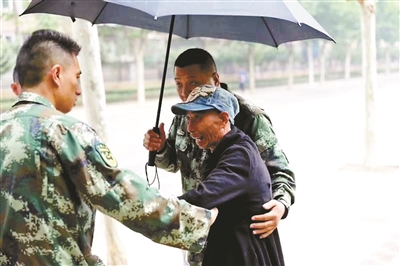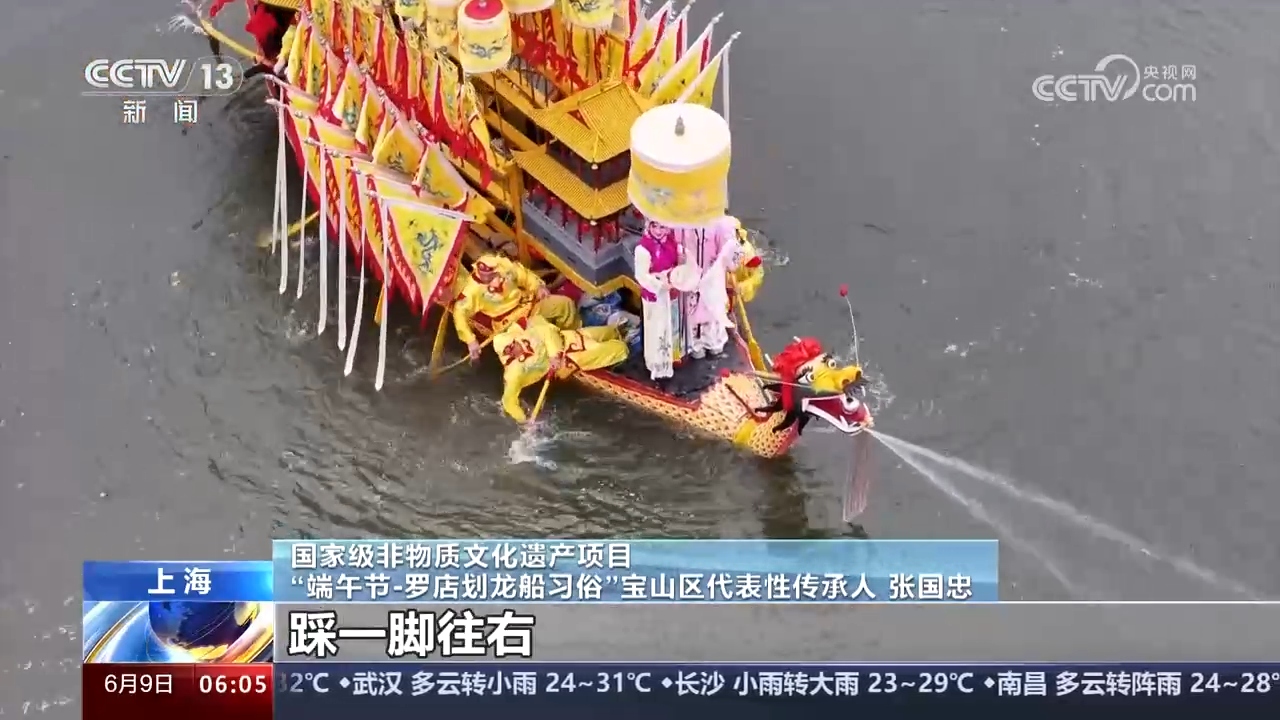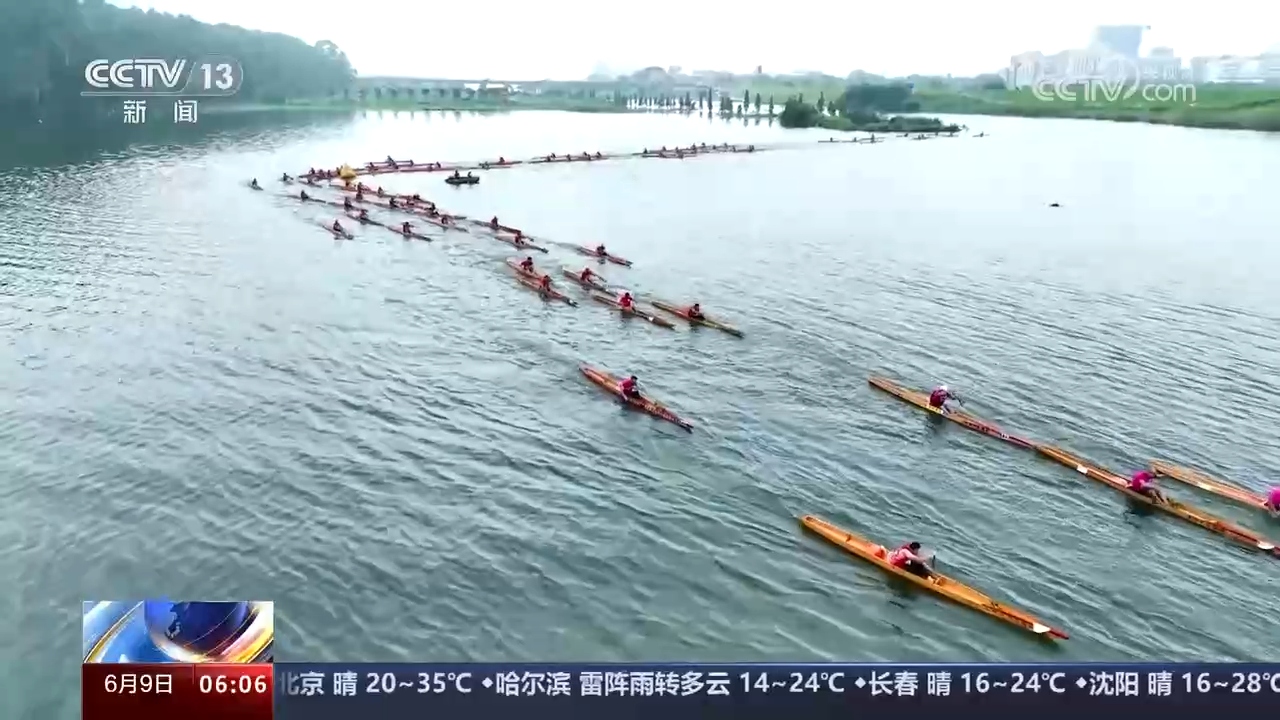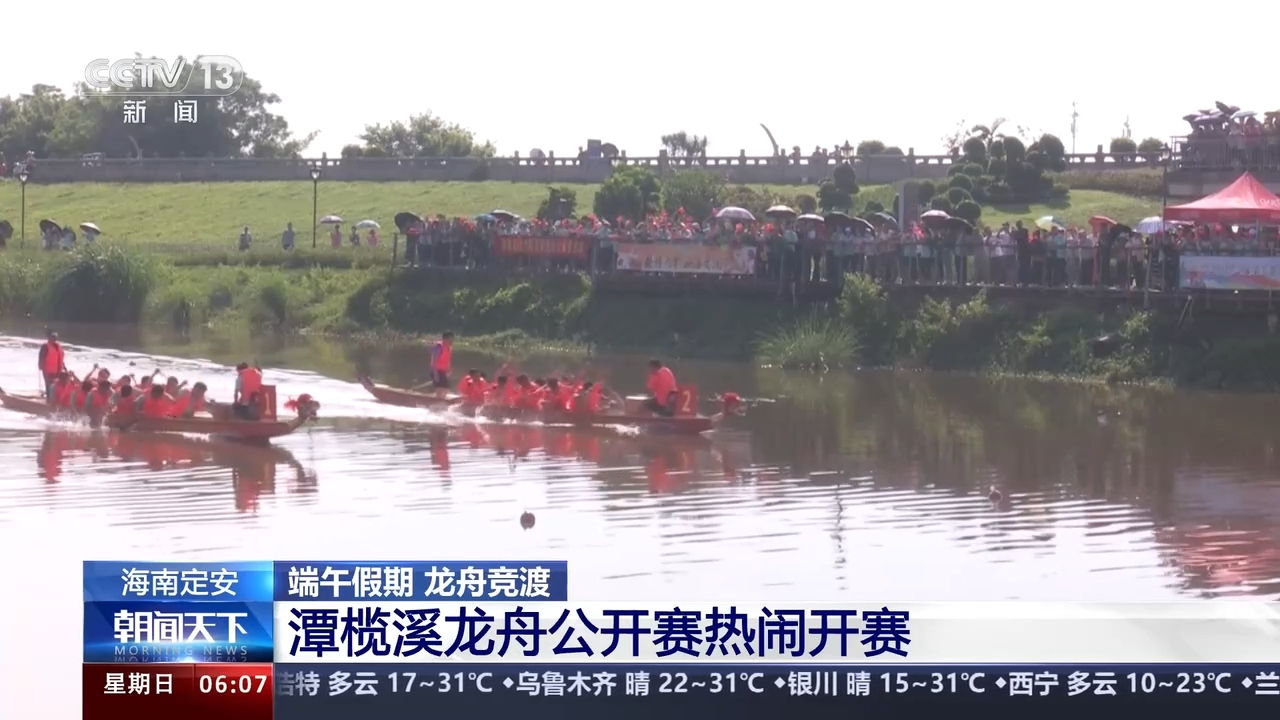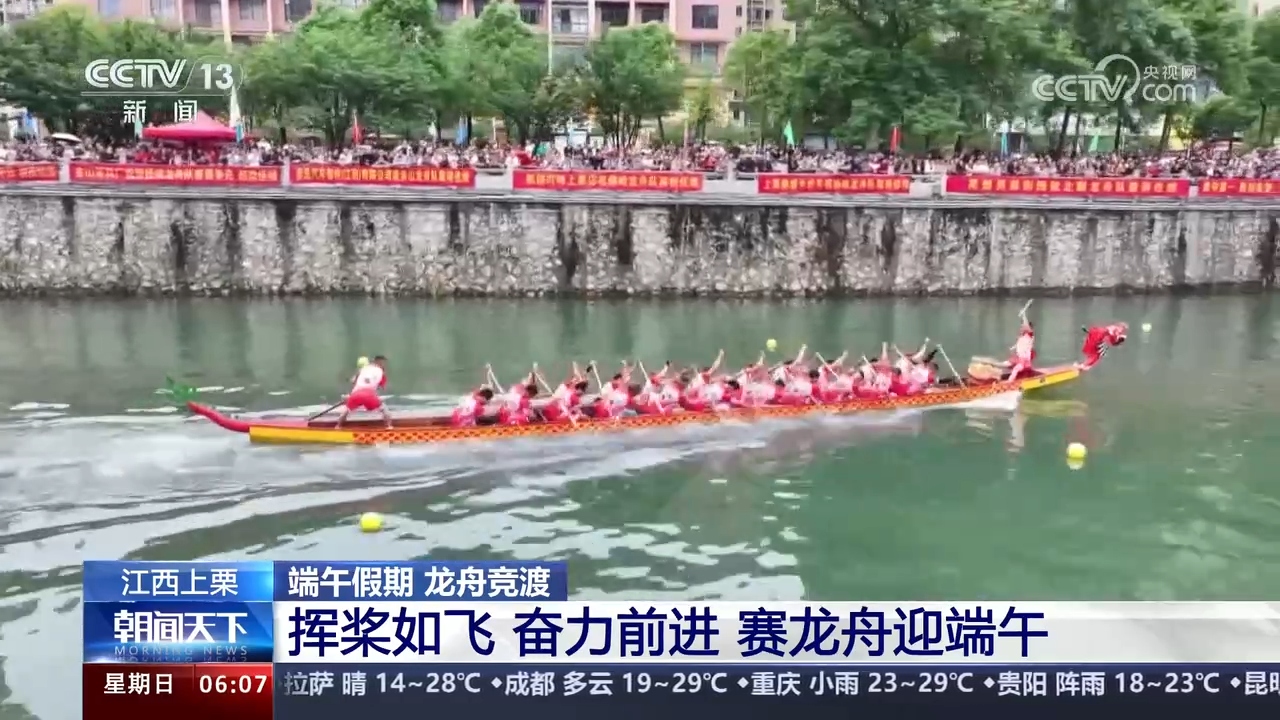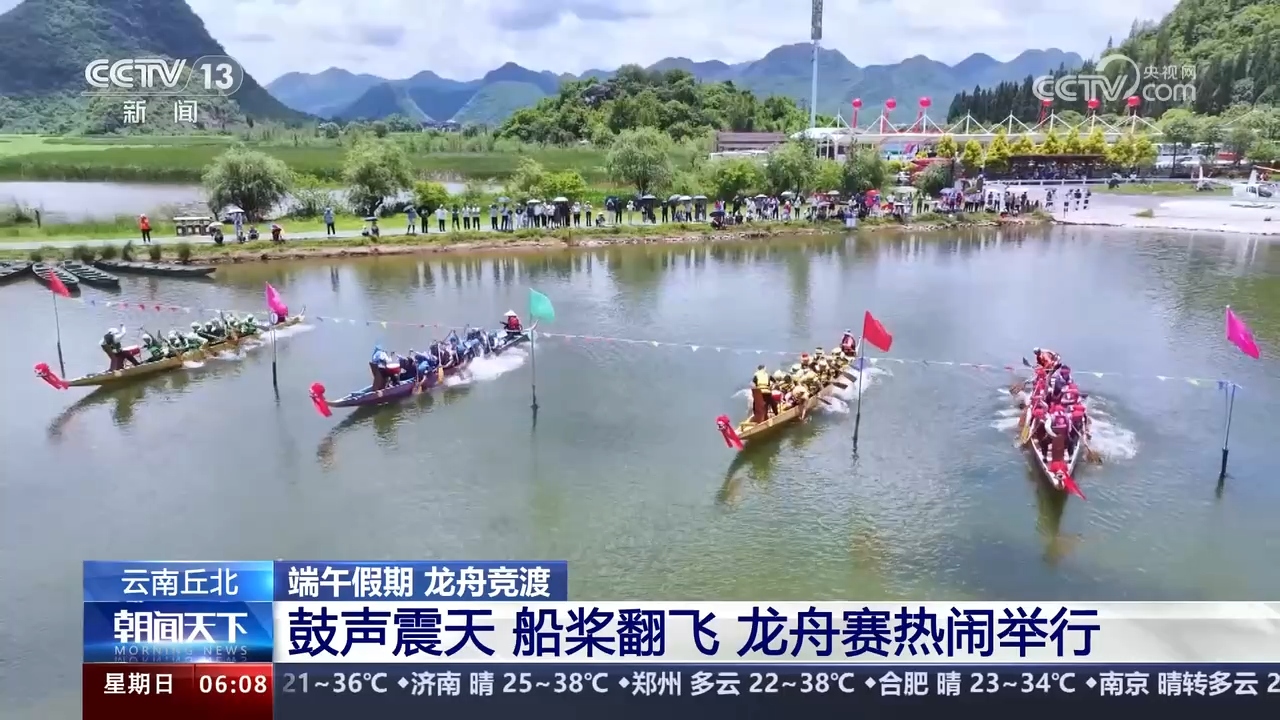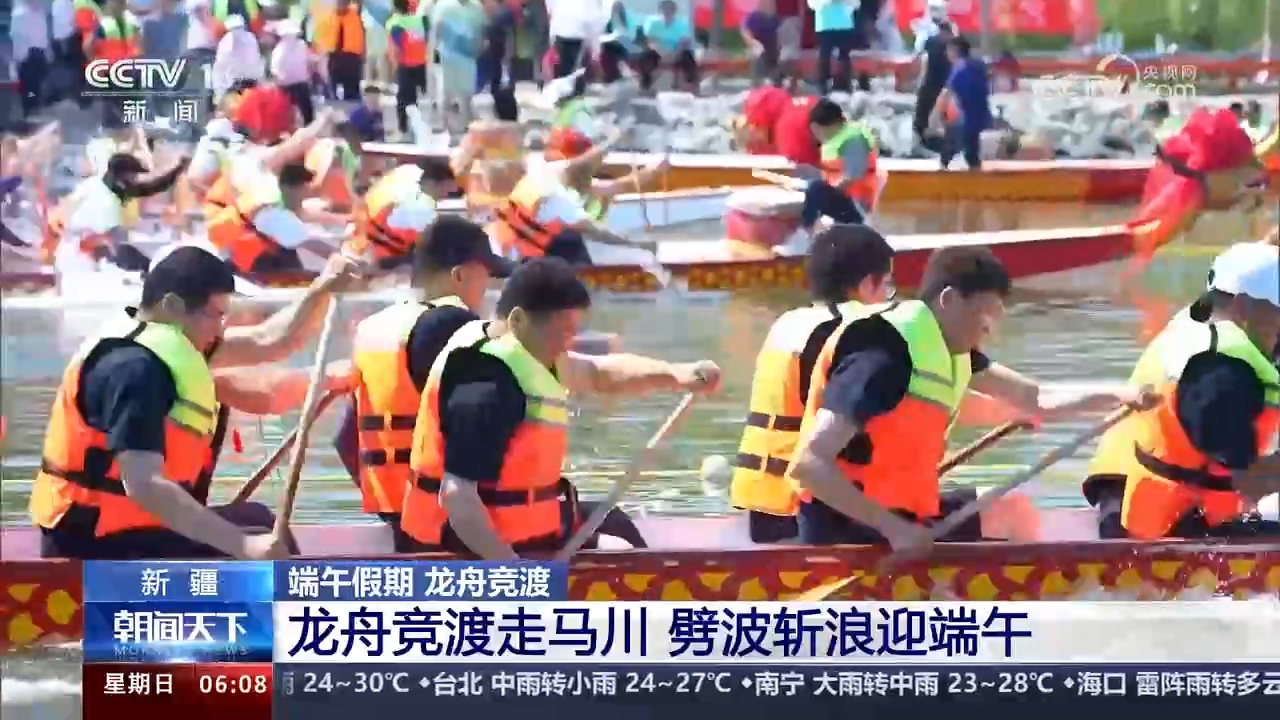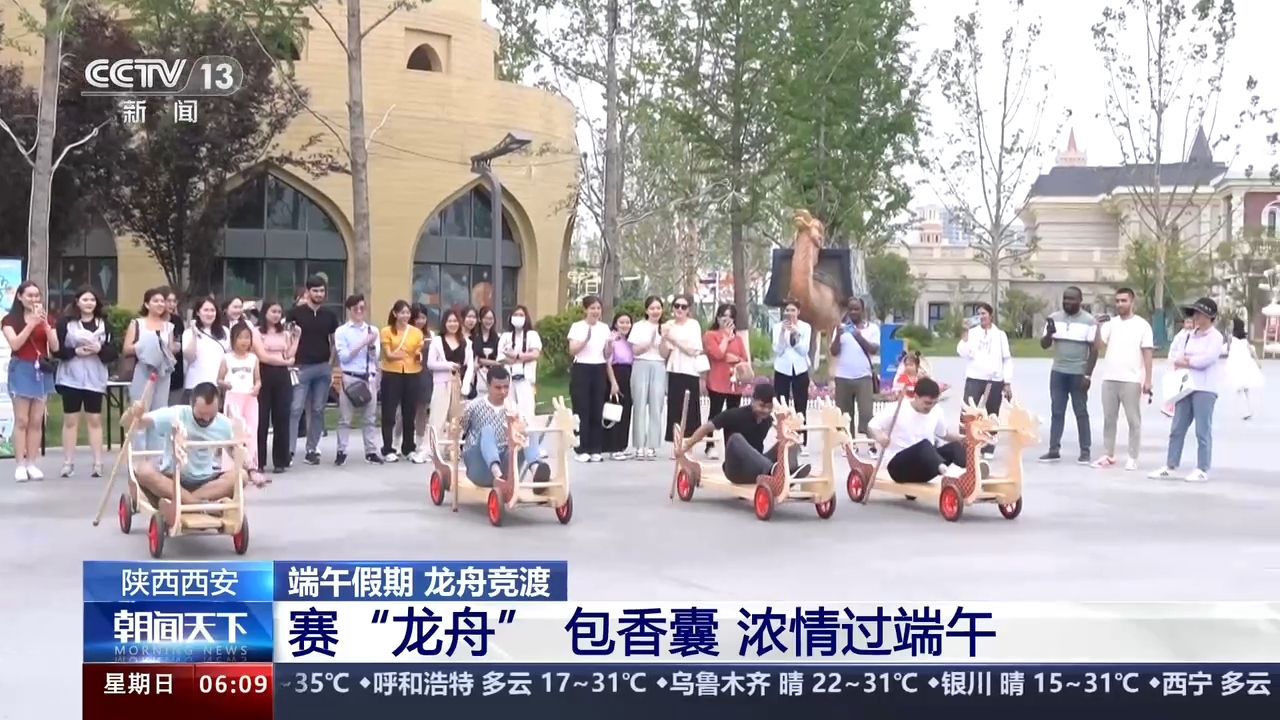ST HNA’s total number of passengers in June was 2,015,700, a year-on-year decrease of 44.37%.
() It was announced that the total number of passengers in June was 2,015,700, an increase of 98.54% from the previous month and a decrease of 44.37% from the same period last year. In June, the freight and postal volume totaled 23,600 tons, an increase of 18.00% from the previous month and a decrease of 25.86% from the same period last year.
By the end of June 2022, the group had operated a total of 343 aircraft. This month, the group added two passenger and cargo charter flights, including Chongqing-Madrid passenger route and Beijing-Frankfurt.
Future shares: all the risky matters involved have been lifted.
Southern Finance on July 19th, on the evening of 18th, the future shares issued several announcements. According to the announcement, all the risks involved in the company have been lifted. According to public information, Hongda Mining, the predecessor of the future shares, has caused many lawsuits and debt crises due to some illegal loans and guarantees. At present, more than 12 cases have been solved by the company’s new actual controllers, with a total investment of more than 1.039 billion yuan. (Southern Finance Li Zhen)
Vinegar shares: several shareholders intend to reduce their holdings by no more than 1.91% in total.
() On the evening of July 19th, it was announced that the shareholders Gu Qingquan, Qing Jiu, Ding Caifeng, Shuai Jianxin, Qian Jin and Xue Jinquan planned to reduce their holdings by centralized bidding within six months from August 11th, 2022, that is, not exceeding 1.91% of the company’s total share capital.
Jingyuntong: The cumulative installed capacity of photovoltaic and wind power generation in the first half of the year was 1402.97MW.
() It was announced on the evening of July 19th that as of June 30th, 2022, the cumulative installed capacity of photovoltaic and wind power generation in the new energy power generation division of the company was 1402.97MW.
Urban construction development elected Chu Zhaowu as chairman.
() Announcement: Recently, the company received a notice from Beijing Urban Construction Group Co., Ltd., the controlling shareholder, that Mr. Chen Daihua would no longer serve as the company’s director, chairman and member of the strategic development and investment decision-making committee according to the relevant regulations of the superior on regulating the part-time work of leaders. At the same time, the board of directors agreed to elect Mr. Chu Zhaowu as the chairman of the eighth board of directors of the company, with a term of office from the date of deliberation and approval by the board of directors to the expiration of the term of office of the eighth board of directors of the company.
Zhuo Xu, the actual controller of Dema Technology, increased his holding of 68,500 shares.
Dema Technology announced that as of July 18, 2022, Mr. Zhuo Xu, the actual controller, chairman and general manager of the company, increased his holding of 68,500 shares of the company by centralized bidding through the trading system of Shanghai Stock Exchange, accounting for 0.08% of the company’s total share capital, with a total holding amount of RMB 1,883,500 (excluding transaction expenses such as commission), accounting for 62.79% of the minimum amount of this holding plan.
Hualian Group, the controlling shareholder of Hualian Zongchao, pledged and pledged 135 million shares.
() Announcement: Recently, the company received a notice from the controlling shareholder Beijing Hualian Group Investment Holding Co., Ltd. (hereinafter referred to as "Hualian Group") that it had gone through the procedures of releasing and re-pledging some of its shares. This time, 135 million shares were released and re-pledged, accounting for 20.31% of the company’s total share capital.
Fan Jianhua, deputy general manager of Dingxin Communication, plans to reduce his holdings by no more than 126,400 shares.
() Announcement: Wang Xiaoyan, the spouse of Fan Jianhua, the company’s deputy general manager, plans to reduce the company’s shares by no more than 126,400 shares, that is, no more than 0.02% of the company’s total share capital, within 6 months after the disclosure of this announcement.
Several shareholders of Vinegar intend to reduce their holdings by no more than 1.91%.
According to the announcement of vinegar chemical shares, the shareholders of the company, Gu Qingquan, Qing Jiu, Ding Caifeng, Shuai Jianxin, Qian Jin and Xue Jinquan, plan to reduce their holdings by centralized bidding within 6 months from August 11, 2022, that is, not exceeding 1.91% of the company’s total share capital.
Zhenbaodao and Heilongjiang Academy of Traditional Chinese Medicine signed a strategic cooperation framework agreement.
() Announced that the company signed the Strategic Cooperation Framework Agreement with Heilongjiang Academy of Traditional Chinese Medicine (hereinafter referred to as "Zuyan"). On the premise of complying with national laws, regulations and policies, the two sides intend to carry out scientific and technological research and development of Chinese medicine products, the construction of hospital preparation development and dispensing platform, and the construction of Chinese medicine medical association (note: medical association refers to the integration of medical resources in the same area, usually by tertiary hospitals and hospitals in a region. ) Co-construction with hospital departments, construction of smart pharmacies and commercial distribution, construction of Internet hospitals, training of Chinese medicine talents and participation in joint construction of Beiyao Smart Industrial Park.
This framework agreement is an intentional agreement, and the implementation of specific projects needs to be followed by the signing and performance of new contracts, so the signing of the framework agreement will not have a direct impact on the company’s operating performance in 2022. In the future, with the development of cooperation content, it will play a positive role in promoting the development of Zhenbao Island in developing the whole industrial chain business of Chinese medicine, expanding the construction of medical associations, smart pharmacies, Internet hospitals and upgrading the trade business of Chinese herbal medicines.
The land that Commodity City participates in bidding is intended to be used to build a global digital trade center.
() Announcement: On July 19, 2022, the board of directors of the company reviewed and approved the Proposal on Participating in Land Auction. The land to be auctioned this time is intended to be used to build a global digital trade center. As the land auction has not yet ended, this matter is a temporary trade secret. According to relevant regulations, the disclosure of this proposal is suspended.
Anjing Food intends to present the company’s "Private Exchange" membership and product gift box to all shareholders free of charge.
() Announcement, in accordance with the business strategy of "three ways to go hand in hand and all channels to make efforts", the company recently launched the official WeChat mall "Private Sharing Exchange" to meet the needs of consumption trends and consumption upgrading; The purpose is to consolidate the existing dealer system, make use of the characteristics of national distribution, expand the direct channel of e-commerce while controlling logistics costs, gradually develop and accumulate its own household consumption customers, and improve the company’s comprehensive competitiveness.
In order to thank the shareholders for their long-term concern and support for the company, and to facilitate shareholders to better experience the company’s products and more intuitively understand the innovative channel mode of "private foreign exchange", the company decided to present the company’s "private foreign exchange" membership and the company’s product gift box to all shareholders in a free way, and to solicit opinions and suggestions from shareholders on the company’s development and products.
It is reported that after the closing of date of record on June 28th, 2022, all shareholders registered in Shanghai Branch of China Securities Depository and Clearing Co., Ltd. will receive the membership of Anjing Food’s "Private Exchange" applet, and each shareholder can apply for a free product gift box. The application time is from 8: 30 on July 19, 2022 to 24: 00 on August 18, 2022.
Vinegar shares: several shareholders intend to reduce their holdings by no more than 1.91% in total.
On July 19th, the financial sector announced that the shares of Vinegar Chemical Co., Ltd., Gu Qingquan, Qing Jiu, Ding Caifeng, Shuai Jianxin, Qian Jin and Xue Jinquan planned to reduce their holdings by no more than 1.91%.
Haili shares received a total of 30,063,300 yuan of government subsidies related to income.
() Announced that the company and its holding subsidiaries have received a total of 30,063,300 yuan of government subsidies related to income since January 20, 2022, which has reached 9.31% of the company’s audited net profit attributable to shareholders of listed companies in the latest fiscal year. It is estimated that the net profit attributable to shareholders of listed companies will increase by 26.3469 million yuan (unaudited).
Songlin Technology: The public offering of 610 million yuan convertible bonds has been approved by China Securities Regulatory Commission.
The sponsor (lead underwriter) of this issuance is Guotai Junan Securities Co., Ltd.
On July 19th, () issued a public announcement on the issuance of convertible corporate bonds.
According to the announcement, Songlin Technology’s public offering of 610 million yuan convertible corporate bonds (hereinafter referred to as "Songlin Convertible Bonds", code "113651") has been approved by the China Securities Regulatory Commission. The sponsor institution (lead underwriter) of this issuance is Guotai Junan Securities Co., Ltd..
According to the announcement, Songlin Convertible Bonds will be given priority placement to the original shareholders registered by Songlin Technology after the closing of the market in date of record. Priority placement of original shareholders is carried out through online subscription. This time, the convertible bonds are issued to the original shareholders to give priority to the placement of securities, and there is no longer a distinction between the restricted tradable shares and the unrestricted tradable shares.
The announcement shows that when the total number of convertible bonds subscribed by the original shareholders and the number of convertible bonds subscribed by online investors is less than 70% of this issuance, or when the total number of convertible bonds subscribed by the original shareholders and the number of convertible bonds subscribed by online investors is less than 70% of this issuance, Songlin Technology and the sponsor institution (lead underwriter) will negotiate whether to take measures to suspend the issuance, and report to the China Securities Regulatory Commission in time. If the issuance is suspended, the reasons for the suspension will be announced and the issuance will be restarted within the validity period of the approval.
According to the announcement, the part of the subscription amount of this issuance that is less than 610 million yuan is underwritten by the balance of the sponsor institution (lead underwriter), and the underwriting base is 610 million yuan. The sponsor institution (lead underwriter) determines the final placement result and underwriting amount according to the online funds, and the underwriting ratio of the sponsor institution (lead underwriter) does not exceed 30% of the total issuance in principle, that is, the maximum underwriting amount is 183 million yuan in principle.
Jingyuntong: As of the second quarter, the cumulative installed capacity of photovoltaic and wind power generation was 1402.97MW.
Jingyuntong announced that as of June 30, 2022, the cumulative installed capacity of photovoltaic and wind power generation in the new energy power generation division of the company was 1402.97MW, of which the installed capacity of photovoltaic power generation was 1254.47MW and the installed capacity of wind power generation was 148.50MW. In the second quarter, the photovoltaic power generation was 433 million kWh, and the on-grid power was 421 million kWh. The wind power generation capacity is 106 million kWh, and the on-grid power consumption is 102 million kWh.
Taiyuan Heavy Industry sued Daqing Yuanjing Technology and other companies for contract disputes, and the amount involved was tentatively set at 1.458 billion yuan.
() Announcement, the company filed a lawsuit with Taiyuan Intermediate People’s Court for contract dispute, requesting that Dulbert Mongolian Autonomous County Ladanbao Wind Power Generation Co., Ltd. and Daqing Yuanjing Technology Co., Ltd. jointly repay the company’s arrears of 1.444 billion yuan and the interest from May 1, 2019 to the date of actual payment, temporarily totaling 1.458 billion yuan as of May 1, 2022. The amount of litigation involved in this case accounts for 30.39% of the company’s latest audited net assets.
The announcement shows that this announcement case is a case of overdue accounts receivable disputes arising from the general contracting contract of the project, involving a total amount of 1.458 billion yuan temporarily, and a total of 55.3044 million yuan has been accrued for bad debts.
Taiyuan Heavy Industry Co., Ltd.: The total amount of major litigation involved is 1.458 billion yuan.
Taiyuan Heavy Industry announced on the evening of July 19th that the company filed a lawsuit with the Intermediate People’s Court of Taiyuan City for contract disputes, requesting that Dulbert Mongolian Autonomous County Ladanbao Wind Power Generation Co., Ltd. and Daqing Yuanjing Technology Co., Ltd. jointly repay the company’s arrears of 1.444 billion yuan and the interest from May 1, 2019 to the date of actual payment, temporarily totaling 1.458 billion yuan as of May 1, 2022; The amount of litigation involved in this case accounts for 30.39% of the company’s latest audited net assets.
The passive reduction ratio of the controlling shareholder of Zhongju Gaoxin reached 1%.
() Announcement was issued. As of the announcement date, the shareholding ratio of Zhongshan Runtian, the controlling shareholder, decreased from 19.44% to 17.84%, and the passive reduction ratio of the controlling shareholder reached 1%.
Zhongju High-tech was increased by 8.68 million shares by shareholder Dinghui Huanying.
Zhongju High-tech announced that the company received a notice from CDH Huanying, the concerted action person of Torch Group, which holds more than 5% of the shares. On July 18th, CDH Huanying increased its holding of 8.68 million shares of the company through block trading, with an increase ratio of 1.09%.
Taiyuan Heavy Industry: 1.458 billion yuan involved in major litigation.
The financial sector reported on July 19th that Taiyuan Heavy Industry announced that it had brought a lawsuit to Taiyuan Intermediate People’s Court for contract disputes, and requested that Dulbert Mongolian Autonomous County Ladanbao Wind Power Generation Co., Ltd. and Daqing Yuanjing Technology Co., Ltd. jointly repay the company’s arrears of 1.444 billion yuan and the interest from May 1, 2019 to the actual payment date, temporarily totaling 1.458 billion yuan as of May 1, 2022; The amount of litigation involved in this case accounts for 30.39% of the company’s latest audited net assets.
Carbon yuan technology intends to borrow no more than 70 million yuan from the controlling shareholder and related parties.
() Announce that, in order to meet the daily operation capital requirements of the company and supplement the company’s working capital, the company plans to apply for a loan from Xu Shizhong, the controlling shareholder and actual controller, and Hanyuan Investment, the related party, within the next six months, with a loan amount of no more than 70 million yuan and an annual interest rate of 0%, without the need for the company to provide mortgage or guarantee.
Ou Ke billion plans to set up a subsidiary in Zhuzhou to expand the CNC tool business.
Ou Ke billion announced that in order to further expand the company’s CNC tool overall solution business and improve market competitiveness, the company plans to set up a wholly-owned subsidiary Zhuzhou Ou Ke billion Intelligent Technology Co., Ltd. (tentative name, subject to industrial and commercial approval, hereinafter referred to as the "subsidiary") in Zhuzhou High-tech Industrial Development Zone, with a registered capital of 50 million yuan, with the newly established subsidiary as the main body of implementation, to rapidly promote the overall solution layout of the company.
This investment in establishing a wholly-owned subsidiary is a prudent decision based on the analysis of the current situation and trend of the industry development and the company’s own development needs, which is conducive to further enhancing the company’s comprehensive competitive strength, has a positive role in promoting the company’s sustainable development, and will not have a major adverse impact on the company’s financial situation and operating results, nor will it harm the interests of the company and shareholders.
Shanghai Shengyong, the shareholder of Qinghai Huading, reduced its shareholding by 1% in a block transaction.
() Announcement, the company received the Letter of Notice on Reducing the Company’s Shares from the shareholder Shanghai Shengyong. On July 19th, Shanghai Shengyong reduced its shares by 4,388,500 shares through commodity trading system of Shanghai Stock Exchange, accounting for 1% of the company’s total share capital.
Three Gorges Group, the major shareholder of Shanghai Electric Power, plans to reduce its shareholding by no more than 2%.
() It was announced that China Three Gorges Corporation Limited ("Three Gorges Corporation"), a shareholder holding 6.15% of the company’s shares, plans to reduce its holding of the company’s shares by centralized bidding within six months after 15 trading days from the date of announcement, accounting for 2% of the company’s total shares.
Shanghai Electric Power: Three Gorges Group plans to reduce its shareholding by no more than 2%.
The financial sector reported on July 19 that Shanghai Electric Power announced that the Three Gorges Group intends to reduce its shareholding by no more than 2%.
Shanghai Electric Power: Three Gorges Group plans to reduce its shareholding by no more than 2%.
Shanghai Electric Power announced on the evening of July 19th that the Three Gorges Group, a shareholder holding 6.15% shares, intends to reduce its shareholding by no more than 2%. Three Gorges Group and () are acting in concert, holding 8.27% of the company’s shares.
Shanghai Electric Power: Three Gorges Group plans to reduce its shareholding by no more than 2%.
Shanghai Electric Power announced on the evening of July 19th that the Three Gorges Group, a shareholder holding 6.15% shares, intends to reduce its shareholding by no more than 2%. The Three Gorges Group and Changjiang Power are acting in concert, holding 8.27% of the company’s shares.
Tamia Liu, the core technician of Dongwei Technology, completed the reduction of 200,000 shares, exceeding the reduction plan by 50,000 shares.
Dongwei Technology announced that in view of the previously disclosed reduction plan, Mr. Tamia Liu, the company’s core technician, intends to reduce some of its shares through centralized bidding transactions, with the total number not exceeding 150,000 shares, accounting for no more than 0.102% of the company’s total share capital.
From July 11, 2022 to July 19, 2022, Mr. Tamia Liu reduced some of his shares in the company by centralized bidding, with a total reduction of 200,000 shares, and completed the reduction plan of centralized bidding. Due to misoperation, Mr. Tamia Liu’s centralized bidding transaction exceeded the planned reduction by 50,000 shares. This illegal reduction was caused by misoperation, and there was no subjective intention. After discovering the above misoperation, Mr. Tamia Liu informed the company in time and issued an explanation and an apology letter for this illegal reduction.
Sheng Yongjian, director of Guizhou Sanli, completed the plan to reduce the holding of 3,227,300 shares.
() Announcement was issued. As of the disclosure date of this announcement, Mr. Sheng Yongjian, the director of the company, reduced the company’s shares by a total of 3,227,300 shares through centralized bidding, accounting for 0.7855% of the company’s total share capital. This reduction plan has been completed.
China publishing subsidiary filed a lawsuit against Beijing Faxuan New Times and other parties for contract disputes.
() It is announced that China Democracy and Legal Publishing House Co., Ltd. ("Democracy and Legal Publishing House"), a wholly-owned subsidiary of the company, has filed a lawsuit with the Fengtai District People’s Court of Beijing on the contract dispute with Beijing Faxuan New Era Enterprise Management Consulting Center (Limited Partnership) and other parties. On July 13th, 2022, democracy and legal system received the Notice of Accepting Cases issued by Fengtai District People’s Court in Beijing. The amount involved: liquidated damages, interest, dividends, attorney fees totaling 89,557,100 yuan, acceptance fees, preservation fees, litigation property preservation liability insurance fees and other related expenses.
Zhou Huidong, Chief Information Officer of Caitong Securities, resigned
() Announcement, Zhou Huidong applied to resign as the company’s chief information officer for personal reasons. After resigning, Zhou Huidong no longer holds any position in the company.
Sino Medical: The two shareholders intend to reduce their shares by no more than 8.07% in total.
Sino Medical announced on the evening of July 19th that Great Noble Investment Limited, a shareholder holding 2.1% of the shares, intends to reduce its shareholding by no more than 2.1%. CSF Stent Limited, the shareholder holding 5.97% of the shares, intends to reduce the company’s shares by no more than 5.97%. The two shareholders intend to reduce their holdings by no more than 8.07% in total.
CSF Stent Limited, the shareholder of Sino Medical, intends to reduce its holdings by no more than 5.97%.
Sino Medical announced that due to the need of its own development funds, CSF Stent Limited, a shareholder of the company, intends to reduce the company’s shares with a total of no more than 24,458,400 shares through centralized bidding and block trading during the reduction period disclosed in this reduction plan, and the proportion of the reduced shares in the company’s total share capital is no more than 5.97%.
Zhongke Lanxun plans to use temporarily idle raised funds of no more than 2.589 billion yuan for cash management.
Zhongke Lanxun announced that the company issued 30 million ordinary shares of RMB to the public for the first time, with the issue price of RMB 91.66 per share, the total raised funds were 2.75 billion yuan, and the net raised funds were 2.589 billion yuan.
It is reported that due to the need for a certain period of fundraising projects, according to the progress of fundraising projects, some of the funds raised by the company are temporarily idle. The board of directors of the company agreed that the company would use temporarily idle raised funds up to RMB 2.589 billion (inclusive) for cash management on the premise of ensuring that the implementation of fundraising projects would not be affected and the safety of raised funds would be ensured.
Great Noble, the shareholder of Sino Medical, intends to reduce its holdings by no more than 2.1%.
Sino Medical announced that due to the need of its own development funds, Great Noble Investment Limited (hereinafter referred to as "Great Noble"), a shareholder of the company, intends to reduce the total number of shares of the company by centralized bidding and block trading during the reduction period disclosed in this reduction plan, and the proportion of the reduced shares in the company’s total share capital shall not exceed 2.10%.
Zhuo Shuying, the major shareholder of Longyun Co., Ltd., and the concerted parties have increased their holdings by 1.37% for more than half of the holding period.
() Announcement. As of the disclosure date of this announcement, Zhuo Shuying, a shareholder holding more than 5% of the company’s shares, and his concerted actions Zhuo Guangming and Zhuo Yinan have increased their holdings by 1.275 million shares through centralized bidding, accounting for 1.37% of the company’s total share capital.
As of the disclosure date of this announcement, Zhuo Shuying holds 5.93 million shares of the company, with a shareholding ratio of 6.35%; Zhuo Guangming holds 560,000 shares of the company, with a shareholding ratio of 0.60%; Zhuo Yinan holds 570,000 shares of the company, with a shareholding ratio of 0.61%. The holding entities hold a total of 7.06 million shares of the company, accounting for 7.56% of the company’s total share capital.
Dongwei Semiconductor made LP and invested 60 million yuan in Nachuan Capital.
On July 19th, the investment community reported that Suzhou Dongwei Semiconductor Co., Ltd. (Dongwei Semiconductor) announced on the 15th that the company intends to jointly establish a venture capital fund Suzhou Industrial Park Sunawei New Venture Capital Partnership (Limited Partnership) with Suzhou Nachuan Semiconductor Partnership (General Partnership). Its executive partner is Suzhou Nachuan Semiconductor.
It is reported that the total fundraising scale of the fund does not exceed RMB 100 million. The initial fundraising amount is 71 million yuan, and the subsequent fundraising will be increased according to the progress of the initial investment. Among them, Dongwei Semiconductor, as a limited partner, intends to subscribe RMB 60 million with its own funds, accounting for 845,070% of the total subscribed capital of the fund in the first phase.
The fund mainly invests in enterprises and funds in the upstream and downstream related fields of semiconductor industry chain such as semiconductor industry and new energy.


It is reported that Nachuan Capital was established in 2016 and is an equity investment company covering angel investment, VC investment and PE investment. The company has set up a nanotechnology application industry fund, which mainly invests in the fields of new generation information technology, nano new materials, equipment manufacturing, medical and health care.
Founded in 2008, Dongwei Semiconductor is a technology-driven semiconductor technology company with original semiconductor transistor structure as its core technology. The company’s products include high-voltage GreenMOS and medium-low voltage SFGMOS.
Smith Barney: Zhang Shaowu resigned as general manager.
() Announced that the board of directors of the company recently received a written resignation application from Mr. Zhang Shaowu, the general manager of the company. Mr. Zhang Shaowu resigned as the general manager of the company due to his job adjustment application. According to the relevant provisions of the Company Law and Articles of Association, the resignation report shall take effect as of the date it is delivered to the board of directors of the company. After resigning from the above position, Mr. Zhang Shaowu will continue to serve as the chairman of the company, a member of the nomination committee and a member of the strategy committee, and will focus on the strategic development and layout of the company.
After being examined by the Nomination Committee of the Board of Directors of the Company, the 12th meeting of the Second Board of Directors of the Company deliberated and adopted the Proposal on Changing the General Manager of the Company, and agreed to appoint Mr. Zhang Tong as the general manager of the Company, who will be responsible for the daily operation and management of the Company. The term of office will be from the date of deliberation and approval by the Board of Directors to the date of expiration of the Second Board of Directors.
Jiangsu Banking Insurance Regulatory Bureau approved the qualification of Vice President of Hangzhou Haojun Zijin Bank.
() Announcement: The company received the Reply from Jiangsu Supervision Bureau of China Banking and Insurance Regulatory Commission, China on the post qualification of Hang Haojun, and approved the post qualification of Vice President of Hang Haojun Jiangsu Zijin Rural Commercial Bank Co., Ltd.
Nanhai Growth, a shareholder of Yuanchen Technology, has reduced its shareholding by 1.12%.
Yuanchen Technology announced that on July 19, 2022, the company received the Notice Letter on the Change of Holding Yuanchen Technology Shares issued by its shareholder Nanhai Growth. From July 1, 2022 to July 18, 2022, Nanhai Growth has reduced its holdings of 1.8 million shares of the company through centralized bidding transactions, accounting for 1.12% of the company’s total share capital.
The cumulative holding of 0.46% by the controlling shareholder of Linglong Tire was completed.
() Announced that from March 18th to July 19th, 2022, Linglong Group, the controlling shareholder, increased its holdings of 6.723 million shares through the centralized bidding trading system of Shanghai Stock Exchange, accounting for 0.46% of the total share capital of the company at present, with a cumulative increase of 150 million yuan. This increase plan has been implemented.
Yuanchen Technology granted 4.25 million restricted shares to the incentive object for the first time at a grant price of 5 yuan/share.
Yuanchen Technology announced that the 26th meeting of the second board of directors and the 20th meeting of the second board of supervisors held on July 19th, 2022 reviewed and approved the Proposal on Granting Restricted Shares to Incentive Objects for the First time, and determined July 19th, 2022 as the first grant date, and granted 4.25 million restricted shares to 102 incentive objects at the grant price of RMB 5.00 per share.
Sichuan Changhong in 2021: It is planned to pay 0.02 yuan per share for ex-dividend on July 27th.
() Announce the company’s annual profit distribution plan for 2021: a cash dividend of 0.02 yuan per share (including tax).
The date of record for this equity distribution is July 26th, 2022, and the ex-dividend date is July 27th, 2022.
Libert: About 110 million initial restricted shares will be listed and circulated on July 26th.
() Announce the listing and circulation of some restricted shares in the initial public offering. The number of restricted shares listed and circulated this time is about 110 million shares, accounting for 24.54% of the company’s total share capital, and will be listed and circulated on July 26, 2022.
The "high-priced liquor" listening to flowers has attracted two "Nobels" for China liquor.
On the afternoon of July 14th, () announced that Murad, winner of the Nobel Prize in Physiology or Medicine in 1998, and Vachel, winner of the Nobel Prize in Chemistry in 2013, would be the chief scientists of Tinghuajiu.
The sales of Tinghua Liquor is one of the main businesses in Qinghai Spring. Since its listing, Tinghua Liquor has become popular on the Internet by virtue of the new brewing theory of "double activation" and the record-breaking price of 58,600 bottles, and has successfully driven the revenue performance of Qinghai Spring to rise. According to the quarterly report of Qinghai Spring, the company realized operating income of 75.222 million yuan, up by 270.40% year-on-year, among which the liquor business represented by high-end business liquor listening to flower wine realized income of 52.9695 million yuan, up by 1101.59% year-on-year, which has completely become the core driving force for Qinghai to return to high growth in spring.

Tinghua sauced style Chinese spirit boutique
This time, the precedent of opening liquor industry in Qinghai in the spring and the Nobel Prize winners once again made efforts to innovate liquor technology. Many people in the industry said that this move in Qinghai in the spring may become a catfish to activate the innovation and development of liquor in China.
An industry insider said that the focus of the liquor industry has always been on the difference between pits and traditional processes, and there is little revolutionary innovation. This also directly leads to the fierce competition for liquor homogenization, and liquor drinkers are constantly being eroded by foreign brands. Innovation needs strong science and technology as the support, and it is a feasible path for the healthy development of liquor to jump out of the inherent pattern of liquor and cooperate with Nobel Prize winners with close scientific research direction.
In fact, the research directions of these two Nobel Prize winners, one is devoted to the study of nitric oxide-related cell signals, and the other is the founder of computational enzymology, which are also highly consistent with the innovative direction of listening to flower wine to improve health.
It is understood that Professor Murad won the Nobel Prize in Physiology or Medicine in 1998 for discovering that nitric oxide (NO) can promote cardiovascular expansion. It is found that nitric oxide not only plays an important role in many fields such as atherosclerosis, hypertension, diabetes, lung diseases, wound healing and even tumors, but also plays a positive role in anti-aging. This scientific research directly promoted the research and development of viagra and other new drugs including cardiovascular, nervous system, cancer and joint treatment drugs. According to the announcement, Professor Murad will guide the company’s R&D team to conduct in-depth research based on the "double activation" brewing theory, focusing on the phenomenon of nitrogen oxide increase caused by "double activation" and its role and value to human health, so as to achieve more systematic and comprehensive harm reduction and gain results. If the two sides can achieve this goal in future cooperation, it will undoubtedly create a new era for the development of China liquor.

Ferid Murad, winner of the Nobel Prize in Physiology or Medicine in 1998.
Professor Vachel won the Nobel Prize in chemistry for "developing multi-scale models for complex chemical systems". As we all know, liquor is fermented by multi-strain microorganisms, and the complexity of their interaction leads to the diversity of metabolites and directly affects the quality of liquor. In recent years, liquor enterprises have been carrying out related microbial research, but the effects of these products on human body have not been fully studied. Qinghai Spring, together with Professor Vachel, studied the effects of different technologies on human body, especially the effects of different flavor substances, their concentration, interaction and other factors on human nerve conduction and brain flavor perception, which can not only achieve a higher goal of listening to flowers, but also provide more innovative solutions for the industry, leading the world distilled wine to a new direction of harm reduction, gain and healthy development.

Arieh Warshel, winner of the 2013 Nobel Prize in Chemistry.
Nowadays, the plan of healthy products has become the mainstream trend of liquor industry, and the frequent appearance of super-high-end products of major brands is essentially market feedback to adapt to consumers’ pursuit of health and quality. The reason why listening to sanhua wine can get great attention is precisely because it meets this point beyond expectations.
While gaining consumer recognition, it highlights new value and gains the trust of the capital market. Since the stock price fell to a low point in 6.2 yuan last year, Qinghai Spring’s share price has risen more than three times, reaching a maximum of 20.67 yuan, far exceeding the increase of various liquor listed companies in the same period.
An investor said that although the quality of Tinghua liquor is very good, it is still in the stage of market development and continuous investment, and brand power and sales channels are big shortcomings. Therefore, Qinghai still needs to invest huge marketing expenses in the short term, and it is difficult to achieve profitability. However, I believe that with the in-depth cooperation with Nobel Prize winners, Tinghua is expected to further lead the market in terms of quality, and promote the development of brand power and sales channels. Once the sales channels are opened, the pattern of China liquor will be expected to be reshaped and even lead to a new round of liquor revolution.
Zijin Bank: Vice President Hang Haojun’s qualification was approved.
On July 19th, Zijin Bank announced that it had recently received the Reply from Jiangsu Supervision Bureau of China Banking and Insurance Regulatory Commission, China on the qualifications of Hang Haojun (Su Yin Bao Jian Fu [2022] No.261), and approved the qualifications of Hang Haojun as the vice president of Jiangsu Zijin Rural Commercial Bank Co., Ltd.
Resume of Hang Haojun
Hang Haojun, male, born in October 1976, with a bachelor’s degree. He used to be the deputy director of Shuangha Credit Cooperative of Yuhua Credit Union, the deputy director of the business department of Nanjing Urban Credit Union, the deputy general manager and general manager of the accounting information department of Nanjing Urban Credit Union, the business development manager of Zijin Rural Commercial Bank Chengzhong Sub-branch, the vice president of Chengdong Sub-branch, the general manager of asset monitoring department and the president of Chengdong Sub-branch. He is currently a member of the Party Committee and assistant to the President of the Bank.
(Editor: Qian Xiaorui)
Guojin Securities plans to pay a cash dividend of 0.07 yuan per share on July 27th.
Guojin Securities announced that the company’s annual equity distribution in 2021 plans to distribute a cash dividend of 0.07 yuan per share (including tax), and the cash dividend distribution date is July 27, 2022.
Qin’ an shares: Supervisor Zhang Maoliang reduced his holdings by 25,000 shares on July 19.
() Announced that the company’s closing price increase deviated by more than 20% in three consecutive trading days from July 15, 2022 to July 19, 2022, which was an abnormal fluctuation of stock trading. Supervisor Zhang Maoliang reduced his shareholding by 25,000 shares on July 19.
Guang Ri Co., Ltd. hired Zhang Xiaomei as deputy general manager and financial controller.
() Announced that the Board of Directors agreed to appoint Ms. Zhang Xiaomei as the deputy general manager and chief financial officer of the Company, with the term of office from the date of deliberation and approval by the Board of Directors to the date of expiration of the Ninth Board of Directors.
Xincheng Holdings repurchased 0.02% of the company’s shares and paid a total amount of about 7.24 million yuan.
On July 19th, 2022, the company repurchased 347,500 shares for the first time through centralized bidding.
On July 19th, () issued a progress announcement on repurchasing shares by centralized bidding.
According to the announcement, on July 19, 2022, the company repurchased 347,500 shares for the first time through centralized bidding, and the repurchased shares accounted for 0.02% of the company’s total share capital. The highest price purchased was 20.95 yuan/share, and the lowest price was 20.72 yuan/share, and the total amount paid was 7,242,083 yuan (excluding tax).
According to the announcement, Xincheng Holdings held the 7th meeting of the 3rd Board of Directors on March 29th, 2022 and May 23rd, 2022, respectively, and the 2021 Annual General Meeting of Shareholders deliberated and passed the Proposal on the Share Repurchase Scheme by Centralized Bidding Transaction, agreeing that the company would repurchase the shares of the company by centralized bidding transaction. The total amount of repurchase funds is not less than RMB 100 million (inclusive) and not more than RMB 200 million (inclusive), and the repurchase price is not more than RMB 41.39/share. The repurchase period is within 6 months from the date when the share repurchase plan is reviewed and approved by the shareholders’ meeting, and the repurchased shares will be cancelled to reduce the registered capital of the company.
Guangyun Technology plans to elect Tan Guanghua as the chairman.
Guangyun Technology announced that the company intends to elect Tan Guanghua as the chairman and general manager of the third board of directors of the company and hire Zhang Kailong as the company’s chief financial officer.
Shibei High-tech sent 0.007 yuan per share to date of record on July 25th.
() It is announced that the company will distribute the annual rights and interests in 2021, with a cash dividend of 0.007 yuan (including tax) per share, with date of record on July 25th.
Milkewei’s shareholder Junlian Maolin has reduced its shareholding by 1.3%, and it has been more than half of the period.
() Announcement was issued. As of the disclosure date of the announcement, Junlian Maolin has reduced its shareholding by 846,900 shares through centralized bidding, accounting for 0.51% of the company’s current total share capital; Accumulated reduction of 1.3 million shares of the company through block trading, accounting for 0.79% of the company’s current total share capital. This reduction plan has not yet been implemented.
The controlling shareholder of Vinegar Co., Ltd. intends to reduce its total shareholding by no more than 1.91%.
Vinegar shares announced that the controlling shareholders and actual controllers of the company, Gu Qingquan, Qing Jiu, Ding Caifeng, Shuai Jianxin, Qian Jin and Xue Jinquan, plan to reduce their holdings of the company’s shares by centralized bidding within six months from August 11, 2022, which will not exceed 1.91% of the company’s total share capital.
Guidong Electric Power: Received the notice of filing a case and the notice of investigation from China Securities Regulatory Commission.
The financial sector announced on July 19 that the China Securities Regulatory Commission decided to file a case against the company because the company was suspected of violating laws and regulations on information disclosure; Due to the need of investigation, China Securities Regulatory Commission decided to investigate the company’s alleged information disclosure violations in 2019 and 2020.
Guidong Electric Power is suspected of violating laws and regulations, and the China Securities Regulatory Commission has filed an investigation on the company.
Guidong Electric Power announced that the company recently received the Notice of Filing a Case and the Notice of Investigation from China Securities Regulatory Commission. Because the company is suspected of violating laws and regulations on information disclosure, according to the Securities Law of People’s Republic of China (PRC) and the Administrative Punishment Law of the People’s Republic of China, the China Securities Regulatory Commission decided to file a case against the company; Due to the need of investigation, according to the Securities Law of People’s Republic of China (PRC) and other laws and regulations, the China Securities Regulatory Commission decided to investigate the company’s alleged information disclosure violations in 2019 and 2020.
The shareholders of Sino Medical intend to reduce their holdings by no more than 8.07% in total.
Sino Medical announced that the shareholder CSF Stent Limited intends to reduce the company’s shares by no more than 5.97% of the company’s total share capital; Shareholder Great Noble Investment Limited intends to reduce the company’s shares by no more than 2.10% of the company’s total share capital.
Qixia Construction will send 0.12 yuan per share to date of record on July 25th.
() It is announced that the company will distribute the annual rights and interests in 2021, with a cash dividend of 0.12 yuan (including tax) per share, with date of record on July 25th.
Guidong Electric Power: Securities and Futures Commission filed a case against the company for alleged information disclosure violations.
Guidong Electric Power announced on the evening of July 19 that the CSRC decided to file a case against the company because the company was suspected of illegal information disclosure.
Shanghai electric power shareholders intend to reduce their holdings by no more than 2% through centralized bidding.
Shanghai Electric Power announced that the Three Gorges Group, which holds 8.27% of the shares, plans to reduce its shares by centralized bidding within 6 months after 15 trading days from the date of announcement, and it will not exceed 2% of the total shares of the company.
Taiyuan Heavy Industry was involved in a major lawsuit involving 1.458 billion yuan.
Taiyuan Heavy Industry announced on the evening of July 19th that it had brought a lawsuit to Taiyuan Intermediate People’s Court for contract disputes, requesting that Dulbert Mongolian Autonomous County Ladanbao Wind Power Generation Co., Ltd. and Daqing Yuanjing Technology Co., Ltd. jointly repay the company’s arrears of 1.444 billion yuan and the interest from May 1, 2019 to the date of actual payment, temporarily totaling 1.458 billion yuan as of May 1, 2022; The amount of litigation involved in this case accounts for 30.39% of the company’s latest audited net assets.
Jiangshan Oupai: Net profit in the first half of the year decreased by 34.29% year-on-year.
() It was announced on the evening of July 19th that the revenue in the first half of the year was 1.27 billion yuan, a year-on-year decrease of 9.7%; The net profit was 117 million yuan, a year-on-year decrease of 34.29%. During the reporting period, the market demand slowed down and the epidemic situation affected, and the company’s revenue decreased year-on-year; The increase in raw material prices and the extension of accounts receivable have increased the company’s cost year-on-year.
Ma Yinglong will distribute a cash dividend of 0.35 yuan per share in 2021 on July 28th.
() Announced that this profit distribution of the company is based on the company’s total share capital of 431 million shares before the implementation of the plan, with a cash dividend of 0.35 yuan (including tax) per share, with a total cash dividend of 151 million yuan. Date of record is on July 27, 2022, and the ex-dividend date is July 28, 2022. The distribution targets are all shareholders of the company registered in Shanghai Branch of China Securities Depository and Clearing Co., Ltd. after the closing of the Shanghai Stock Exchange in date of record afternoon.
Weiao shares received a letter of supervision inquiry from the Shanghai Stock Exchange on the company’s 2021 annual report.
() Announcement: Recently, the company received the Inquiry Letter on Information Disclosure Supervision of Qingdao Weiao Rail Co., Ltd. 2021 Annual Report (the "Inquiry Letter") issued by the Management Department of Shanghai Stock Exchange, requiring the company to make a written reply to the Inquiry Letter and fulfill its information disclosure obligations as required.
After the after-the-fact review of the company’s 2021 annual report, the company is requested to further disclose the following information: about the decline of the company’s performance after listing, about other financial conditions, and about information disclosure. In view of the above problems, if the company considers that it is not applicable or it is really inconvenient to disclose due to special reasons according to the requirements of Format Standard No.2, it shall explain the reasons why it cannot be disclosed.
Delong Laser sent 0.5 yuan date of record per share for July 25th.
Delong Laser announced that the company will implement the annual equity distribution in 2021, with cash dividends (including tax) for each share in 0.5 yuan and date of record on July 25th.
In the first half of Guangzhou’s development, the accumulated power generation was 8.466 billion kWh, down 17.29% year-on-year.
() Announcement was issued. From April to June, 2022, the company’s combined caliber power generation enterprises completed a total power generation of 4.356 billion kWh, and the on-grid electricity (including photovoltaic power generation and electricity sales) was 4.127 billion kWh, down by 21.51% and 21.37% respectively compared with the same period of last year. From January to June, 2022, the company’s combined caliber power generation enterprises completed a total power generation of 8.466 billion kWh, and the on-grid electricity (including photovoltaic power generation and sales) was 8.025 billion kWh, down by 17.29% and 17.28% respectively compared with the same period last year.
As of June 30, the company’s market coal sales volume was 14,401,700 tons, a year-on-year decrease of 0.24%.
Pinming Co., Ltd. set up a subsidiary in Hubei to promote the national layout
Pinming Co., Ltd. announced that based on the company’s strategic planning and business development needs, the company set up a wholly-owned subsidiary Hubei Pinming Digital Intelligence Technology Co., Ltd. ("Hubei Subsidiary") in Donghu New Technology Development Zone, Wuhan, Hubei Province with its own funds of RMB 5 million. As of the announcement date, it has completed the registration procedures in industrial and commercial registration and obtained the business license.
It is reported that the establishment of a wholly-owned subsidiary for this foreign investment is a prudent decision made to accelerate the nationwide layout based on the company’s strategic planning and actual business needs.
Nie Lulu and Zhenhua Heavy Industry, shareholders of Huawu, plan to reduce their holdings by no more than 5%.
() Announced that Ms. Nie Lulu, the company’s director, deputy general manager, shareholders holding more than 5% of the shares and the concerted action of the controlling shareholder, plans to reduce the company’s shares by centralized bidding, block trading or a combination of the two within six months from August 10, 2022 after 15 trading days from the disclosure date of this announcement, and the amount of reduction will not exceed 16,803,600 shares (accounting for 4.00% of the company’s total share capital).
Shanghai () (Group) Co., Ltd. (hereinafter referred to as "Zhenhua Heavy Industry"), a shareholder holding more than 5% of the company’s shares, plans to reduce its shares by centralized bidding within 90 consecutive natural days from August 10, 2022 after 15 trading days from the date of disclosure of this announcement, with the reduction amount not exceeding 4,200,900 shares (accounting for 1.00% of the company’s total share capital).
The controlling shareholder of Zhongju Gaoxin received a warning letter from Guangdong Securities Regulatory Bureau.
Zhongju High-tech announced that the company recently received the Decision on Taking Measures to Issue Warning Letter to Zhongshan Runtian Investment Co., Ltd. ([2022] No.93) issued by Guangdong Securities Regulatory Bureau.
After investigation, Sun Yat-sen Runtian, the controlling shareholder of the company, announced through the company’s announcement on June 23, 2021 that he increased his holdings of 670,000 shares on June 22, 2021, and plans to continue to increase his holdings of the company’s shares within 12 months from the date of this increase, with the cumulative increase ratio not less than 1% of the company’s issued shares (including this increase). However, as of June 22, 2022, Sun Yat-sen Runtian increased his holdings in total. Zhongshan Runtian failed to complete the plan to increase the shareholding of Zhongju Hi-tech Co., Ltd. according to the public commitment, which violated the relevant provisions of Article 3 of the Administrative Measures for Information Disclosure of Listed Companies (Order No.182 of the CSRC) and Articles 8 and 15 of the Regulatory Guidelines for Listed Companies No.4-Commitments of Listed Companies and Related Parties (Announcement No.16 of the CSRC).
Bethel spent a total of 38.7588 million yuan to buy back 500,000 shares.
() Announcement was issued. On July 19, 2022, the company completed the repurchase, and actually repurchased 500,000 shares of the company, accounting for 0.122% of the company’s total share capital. The highest repurchase price was 81.20 yuan/share, the lowest repurchase price was 74.50 yuan/share, the average repurchase price was 77.50 yuan/share, and the total amount of funds used was 38.7588 million yuan (including transaction costs).
Linglong Tire: The controlling shareholder spent 150 million yuan to complete the increase plan.
Linglong Tire announced that from March 18, 2022 to July 19, 2022, Linglong Group, the controlling shareholder, accumulated 6.723 million shares of the company, accounting for 0.46% of the company’s total share capital at present, with a cumulative increase of 150 million yuan. This increase plan has been implemented.
22,688,100 restricted shares of Greentown Water will be listed and circulated on July 25th.
() Announced that the number of restricted shares listed and circulated by the company this time is 22,688,100 shares, and the date of listing and circulation is July 25, 2022.
Fuhua Technology, the second largest shareholder of Jiangshan, has reduced its holdings by 1.49%.
() Announcement was issued. On July 19, the company received the Letter of Notice on Reducing Jiangshan Shares by More than 1% from Fuhua Technology, the second largest shareholder. On July 18, Fuhua Technology reduced its shares by 4,547,300 shares through block trading, accounting for 1.49% of the company’s total share capital.
269 million restricted shares will be listed and circulated on July 26th.
() Announced that the number of restricted shares listed and circulated by the company this time is 269 million shares, accounting for 64.2% of the company’s total share capital (as of July 18, 2022). The date of listing and circulation of restricted shares is July 26, 2022.
Chen Hongling, one of the actual controllers of Baolong Technology, plans to reduce the company’s shares by no more than 2% in a block transaction.
() Announced that Mr. Chen Hongling, one of the actual controllers, plans to reduce the total number of shares by block trading within three months after three trading days from the disclosure date of this announcement, accounting for 2% of the company’s total shares.
Baolong Technology: The actual controller intends to reduce the company’s shares by no more than 2% through block trading.
Baolong Technology announced on the evening of July 19 that Chen Hongling, one of the actual controllers holding 18.59% of the shares, intends to reduce his shareholding by no more than 2% through block trading. Chen Hongling and his concerted actions Zhang Zuqiu and Song Jin hold a total of 29.93% of the company’s shares.
Guidong Electric Power was put on file for alleged information disclosure violations.
On the evening of July 19th, Guidong Electric Power announced that the China Securities Regulatory Commission decided to file a case against the company because the company was suspected of violating laws and regulations on information disclosure, according to the Securities Law of People’s Republic of China (PRC) and the Administrative Punishment Law of the People’s Republic of China. Due to the need of investigation, according to the Securities Law of People’s Republic of China (PRC) and other laws and regulations, the China Securities Regulatory Commission decided to investigate the company’s alleged information disclosure violations in 2019 and 2020.
Guidong Electric Power said that during the investigation, the company will actively cooperate with the investigation-related work and fulfill its information disclosure obligations in strict accordance with regulations.
Jiangshan Co., Ltd. plans to set up a subsidiary to accelerate the strategic creation of JS-T205 and realize industrialization.
Jiangshan Co., Ltd. issued an announcement. Previously, in order to meet the industrialization needs of new products such as JS-T205, improve the industrial layout and reduce the management risk of a single production base, the company signed an investment agreement with the People’s Government of zhijiang city, Hubei Province, and planned to purchase land in Yaojiagang Chemical Industry Park in zhijiang city to build the second domestic production base except Nantong base. According to the agreement, the company plans to set up Jiangshan (Yichang) Crop Technology Co., Ltd., a wholly-owned subsidiary in zhijiang city Yaojiagang Chemical Industry Park, as the main body of project implementation and operation, with a registered capital of 90 million yuan, and the company holds 100% equity.
The establishment of a wholly-owned subsidiary by this investment will help the company to make full use of local resource advantages and preferential policies, accelerate the industrialization of the company’s strategic product JS-T205, further enhance the company’s market competitiveness and risk resistance, enhance the company’s core competitiveness, help the company achieve its medium-and long-term strategic goals, and realize its healthy and sustainable development.
Frontier biology: the application for drug supplement of "Aikening" to increase intravenous injection was accepted.
Frontier Bio-announcement: Recently, the company received the Notice of Acceptance of Supplementary Application for Domestic Production of Drugs approved and issued by National Medical Products Administration ("National Medical Products Administration"), and the supplementary application for adding intravenous injection of Aibo Weitai (trade name: Aikening) was accepted.
It is reported that Aikening is a national class 1.1 new drug independently developed by the company, and it is the first long-acting HIV fusion inhibitor approved in the world, with independent intellectual property rights in major markets around the world. Aikening is effective against HIV-1 virus and drug-resistant virus. It is administered once a week by injection, which has the characteristics of low frequency of administration, rapid onset, high resistance barrier, high safety and few side effects. As a long-acting injection drug, Aikening is irreplaceable in clinical application. It provides a new combination of drugs with high efficiency and low toxicity for the treated patients, which is a supplement and promotion to the existing traditional oral drugs.
In addition, if the application for drug supplementation by intravenous injection of Aikening is approved, it can significantly shorten the administration time of Aikening, further improve the convenience of clinical application and the compliance of patients’ medication, help to enrich the clinical application scenarios of Aikening, improve the penetration rate of products in targeted patients, further improve the long-term medication rate of inpatients and outpatients and promote the development of post-exposure prevention market.
Frontier creature: Aikening increased the way of intravenous injection to obtain the acceptance notice of drug supplement application
Frontier Biology announced on the evening of July 19th that Aikenin (Ebovelta for Injection) increased the way of intravenous injection to obtain the acceptance notice of drug supplement application. Aikening is effective against HIV-1 virus and drug-resistant virus, with the characteristics of low frequency of drug use, rapid onset, high drug resistance barrier, high safety and few side effects.
Jiangshan Co., Ltd. plans to acquire the remaining 33% equity of Halimin Company for 122 million yuan.
Jiangshan announced that the company intends to acquire 33% equity of Harbin Limin Agrochemical Technology Co., Ltd. (hereinafter referred to as "Halimin Company") held by 11 natural person shareholders, including Zhang Wenhua, Wang Xiuli, Zheng Quanjun and Frontier, with a transaction consideration of 122 million yuan. After the completion of this acquisition, Halimin will become a wholly-owned subsidiary of the company.
Since the acquisition of 67% equity of Halimin in 2019 and its actual control, the company has actively cooperated with Halimin in internal management, product marketing, raw material procurement, new product registration, etc., and the internal management level of Halimin has been effectively improved, the production scale has been continuously expanded (the total product output in 2021 increased by 68.2% compared with that in 2019), and the operating income and profitability have been continuously increased (the operating income in 2021 was 301.78 million yuan, It increased by 50.24% compared with 2019, and the net profit in 2021 was 38.01 million yuan, up by 17.1% compared with 2019), and the competitiveness and influence of the industry continued to increase, basically achieving the expected acquisition target. The company’s acquisition of the remaining 33% equity of Halimin is to fulfill the agreement of the equity transfer agreement in 2019, which is necessary and feasible and will not adversely affect the company’s financial status and operating results.
Fuda Group, the controlling shareholder of Fuda Co., Ltd., has reduced its holdings by 5,436,700 shares, and the reduction range has expired.
() Announcement was issued. On July 19, 2022, the company received the Notice Letter on the Implementation Results of the Share Reduction Plan issued by the controlling shareholder Fuda Holding Group Co., Ltd. (hereinafter referred to as "Fuda Group"). During the implementation of the shareholding reduction plan, Fuda Group reduced its shareholding by 5,436,700 shares through centralized bidding transactions, accounting for 0.84% of the company’s current total share capital. As of the disclosure date of this announcement, the reduction range of the company’s controlling shareholder Fuda Group’s shareholding reduction plan has expired.
The controlling shareholder of Blu-ray Development intends to passively reduce its shareholding by no more than 2%.
() Announcement, the company received a notice from the controlling shareholder Blu-ray Group that its stock pledge transaction and margin financing and securities lending business with the company’s shares as collateral will be subject to compulsory disposal procedures by relevant financial institutions according to the agreement. The above-mentioned business-related financial institutions intend to default on the underlying securities within six months after 15 trading days from the date of announcement (that is, from August 10, 2022 to February 5, 2023), and plan to reduce their holdings by no more than 60,698,600 shares (accounting for 2% of the company’s current total share capital), and the reduction price will be determined according to the market price.
Chongqing Baiwei, a subsidiary of Blu-ray Development, applied to the court for pre-reorganization and reorganization.
Blu-ray Development announced that Chongqing Baiwei, a wholly-owned subsidiary of the company, was facing the risk of being unable to deliver the long island project of Jiangjin Luhu due to serious operational difficulties. In order to properly solve the problem of creditor’s rights and debts and protect the legitimate rights and interests of property buyers, migrant workers and creditors, Chongqing Baiwei applied to the Fifth Intermediate People’s Court of Chongqing for pre-reorganization and reorganization.
The Fifth Intermediate People’s Court of Chongqing confirmed that Chongqing Baiwei met the requirements of pre-reorganization, registered the pre-reorganization of Chongqing Baiwei, and issued a notice of pre-reorganization to the company on July 19, 2022. The court’s registration of Chongqing Baiwei’s pre-reorganization does not constitute the acceptance of Chongqing Baiwei’s reorganization application, and there is still uncertainty whether Chongqing Baiwei’s reorganization application can be accepted by the court and whether it will enter the reorganization procedure.
Xiangyuan Culture applied to the China Securities Regulatory Commission to temporarily suspend the examination of the approval project for the acquisition of additional assets.
() Announcement, as disclosed in the previous announcement, the company intends to purchase 100% equity of Beijing Bailong Green Technology Enterprise Co., Ltd., Phoenix Xiangsheng Tourism Development Co., Ltd., Zhangjiajie Huanglongdong Tourism Development Co., Ltd., Qiyunshan Tourism Co., Ltd. and Hangzhou Island Network Technology Co., Ltd. held by Xiangyuan Tourism Development Co., Ltd. by issuing shares, and plans to invest in no more than 35 specific investors by inquiry.
At present, the company and relevant intermediaries are organizing relevant materials according to the relevant requirements. However, in view of the fact that the expiry dates of the relevant financial data audit and evaluation reports in the application documents of this transaction are May 31, 2022 and July 31, 2022 respectively, in order to ensure the validity of the audit and evaluation data during the review by the China Securities Regulatory Commission, the company is conducting overtime audit, evaluation and update. Due to the epidemic situation and other factors, it will take some time to complete the relevant work, so the company decided to apply to the China Securities Regulatory Commission for a temporary suspension of the examination and approval of the project of issuing shares to purchase assets in accordance with relevant regulations.
Guidong electric power: suspected of violating laws and regulations, it was filed by the CSRC.
Guidong Electric Power announced that the company recently received the "Notice of Filing" from China Securities Regulatory Commission. Because the company was suspected of illegal information disclosure, China Securities Regulatory Commission decided to file a case against the company; Due to the need of investigation, China Securities Regulatory Commission decided to investigate the company’s alleged information disclosure violations in 2019 and 2020.
WI HARPER, the shareholder of Libertec, reduced his shareholding by 1.66%, and the period for reducing his shareholding has expired.
Laibotec announced that as of the disclosure date of this announcement, WI HARPER FUND VII HONG KONG LIMITED (hereinafter referred to as "WI HARPER"), a shareholder of the company, has reduced its holdings of the company’s shares by centralized bidding to 1,116,700 shares, accounting for 1.66% of the total shares of the company. The reduction time interval of this reduction plan has expired.
*ST Tiancheng: The company does not involve any negotiation or negotiation with liquor companies on "backdoor" or "reorganization".
() Announcement: The deviation of the closing price of the company’s shares in three consecutive trading days, July 15, 2022, July 18, 2022 and July 19, 2022, has exceeded 15%, which is an abnormal fluctuation of stock trading according to the relevant provisions of the Trading Rules of Shanghai Stock Exchange.
Recently, the company paid attention to the existence of rumors about the company’s "backdoor of wine enterprises". The company conducted a comprehensive investigation and consulted relevant shareholders of the company. The company is not involved in the negotiation or negotiation of "backdoor" and "reorganization" with wine enterprises, and the related rumors about "backdoor" of wine enterprises are not true.
The cumulative reduction ratio of shareholder Xinchen Investment of Zeda Yisheng reaches 1%, and the reduction period expires.
Zeda Yisheng issued an announcement. On July 19th, 2022, the company received the Letter of Notice on the Result of the Share Reduction Plan at the Expiration Period (hereinafter referred to as the Letter of Notice) issued by the shareholder Tianjin Xinchen Investment Development Co., Ltd. (hereinafter referred to as "Xinchen Investment"). As of July 19, 2022, Xinchen Investment has reduced its holdings of 831,100 shares of the company through centralized bidding transactions, accounting for 1% of the company’s total share capital. As of the date of issuance of the notification letter, the period of this reduction plan of Xinchen Investment expires.
() It is planned to jointly invest in the restructuring of Dingzhou Water Supply Company and bid for the main joint venture project of North Eco-New Town Water Plant.
The first environmental protection announcement was made, and the board of directors of the company deliberated and passed the Proposal on Investing in the Restructuring of Dingzhou Water Supply Company and Bidding for the Joint Venture Project of Northern Eco-New Town Water Plant. The company, Sichuan Qingshi Construction Co., Ltd. and China Municipal Engineering North China Design and Research Institute Co., Ltd. form a consortium to operate in TOT (handover-operation-handover) and BOOT (construction-ownership-operation-handover) modes. During the operation period, the project company has the franchise right of existing assets and the ownership of new project equipment and facilities. The franchise period of the project is thirty years. Among them, the construction period of the BOOT part is one year (counting from the date of obtaining the construction permit) and the operation period is twenty-nine years; The TOT part starts to operate from the handover date and ends at the same time as the BOOT part.
The content of the project construction is to build a new water plant with a scale of 50,000 tons/day (estimated long-term 100,000 tons/day) and a supporting pipe network of 60.20 kilometers; New company office building (3,200m2); Transfer of the franchise right of existing water supply assets (the scope of assets corresponding to the franchise right of existing water supply assets: including the original pipelines, equipment and other assets of Dingzhou Hongyang Water Supply Co., Ltd., Dingzhou Water Supply Company) and the original employee resettlement funds.
In terms of specific division of labor, the company is responsible for the investment, financing, operation, maintenance and handover of this project, Sichuan Qingshi Construction Co., Ltd. is responsible for the engineering construction of this project, and China Municipal Engineering North China Design and Research Institute Co., Ltd. is responsible for the design of this project. The total investment of the project is estimated to be 486 million yuan. The company plans to establish Dingzhou Water Supply Co., Ltd. (tentative name) with Dingzhou Jiantou Holding Group Co., Ltd., with a registered capital of 146 million yuan. The company contributes 96.294 million yuan in cash and holds 66% equity of Dingzhou Water Supply Co., Ltd. (tentative name).
According to the announcement, this project is the company’s first tap water sales business company in Baoding and surrounding areas, and the successful implementation of the project will help expand the company’s influence in Hebei’s territorial market.
Sinopharm Hyundai: The company’s fixed increase was approved by Sinopharm Group.
() On the evening of July 18th, Sinopharm Group agreed to raise funds for this non-public offering of A shares. The company’s non-public offering of A-shares still needs to be reviewed and approved by the company’s shareholders’ meeting and approved by China Securities Regulatory Commission before it can be implemented.
According to the company’s announcement on the evening of June 26th, the company plans to issue no more than 143 million shares (including the number), the total amount of funds to be raised is no more than 1.2 billion yuan, and the issue price is 8.37 yuan/share. The issue target is Sinopharm Group, which will be used to supplement working capital and repay debts after deducting the issuance expenses.
Shandong Yaobo: Yiyuan County Government and Kaisheng Group terminated the free transfer of the company’s equity.
() Announcement, in August, 2021, in order to jointly promote the economic and social development of Yiyuan County and enhance the strength of () Group Co., Ltd. ("Kaisheng Group"), Yiyuan County People’s Government and Kaisheng Group signed the Framework Agreement on Strategic Cooperation ("Framework Agreement"), stipulating that after both parties have gone through the state-owned assets examination and approval procedures and obtained the approval from the competent authorities, Yiyuan County People’s Government will be responsible for transferring the subordinate state-owned investment company Shandong Luzhong Investment Co., Ltd. After the transfer, Kaisheng Group became the largest shareholder of the company.
On July 19, 2022, the company received the Notice on Forwarding the Yiyuan County People’s Government to Terminate the Proposed Free Transfer of State-owned Shares of Shandong Medical Glass Co., Ltd. from the controlling shareholder Luzhong Investment, with the main contents as follows:
Since the signing of the Framework Agreement, after many times of communication, the Yiyuan County People’s Government and Kaisheng Group have failed to form specific arrangements for the free transfer agreed in the Framework Agreement, have not reached any other interest arrangements or signed any other agreements on Shandong Pharmaceutical Glass, and neither party has obtained the approval of their respective state-owned assets authorities. Luzhong Investment has not made specific arrangements with Kaisheng Group on the free transfer agreed in the Framework Agreement, and has not reached any other interest arrangements or signed any other agreements on Shandong Pharmaceutical Glass.
In order to explore other ways and means to continue cooperation and jointly promote the economic and social development of Yiyuan County, the Yiyuan County People’s Government and Kaisheng Group decided not to carry out the work related to the free transfer of shares of Shandong Yaobo, and Kaisheng Group and its related parties did not subscribe for the non-public offering of shares of Shandong Yaobo. Yiyuan County People’s Government and Luzhong Investment will continue to support the healthy development of Shandong Pharmaceutical Glass in accordance with the existing development strategy, ensure the stability of the management team, production and operation of Shandong Pharmaceutical Glass Company, continue to support the promotion of non-public offering of Shandong Pharmaceutical Glass, and support the planned implementation of fundraising projects. Luzhong Investment ensures the stability of the company’s control and will not reduce its shareholding in the next six months.
Capital Environmental Protection plans to jointly invest in the PPP project on the east line of the South-to-North Water Transfer Project in Xinxiang City, Henan Province.
The first environmental protection announcement was made, and the board of directors of the company reviewed and approved the Proposal on Investing in the PPP Project on the East Line of the South-to-North Water Transfer Project in Xinxiang City, Henan Province. The company, China South-to-North Water Diversion Group Water Investment Co., Ltd. and China 11th Engineering Bureau Co., Ltd. will implement this project in BOT (build-operate-transfer) and O&M (commissioned operation) modes. The construction content of this project includes laying water supply pipelines with a total length of 97 kilometers and an annual water delivery of 80.4 million tons. The total investment of the project is estimated to be 1.752 billion yuan. The project cooperation period is 30 years, including the construction period of 2 years.
In terms of specific division of labor, the Water Company of South-to-North Water Diversion Group takes the lead in the establishment of the project company, project construction management, operation and maintenance management, investment and financing, etc. The 11th Hydropower Bureau Company is responsible for the general contract construction and management of the project, and the company is responsible for the operation and maintenance services and other related work.
In addition, the company plans to establish a joint venture with Water Company of South-to-North Water Diversion Group and No.11 Hydropower Bureau Company. The registered capital of SPV Company is 352 million yuan, and the company contributes 17,623,255 yuan in cash, holding 5% equity of SPV Company. The company plans to establish Xinxiang Capital Water Operation Company (tentative name), with which SPV Company will sign the Pipeline Water Delivery Service Contract, and Xinxiang Capital Water Operation Company (tentative name) will operate the project during the project operation period.
According to the announcement, investing in capital projects is conducive to enhancing the company’s influence and market share in the regional water market in Henan, and is conducive to the company’s further investment and expansion of water projects in Henan and surrounding areas.
Tongda Venture announced the suspension of trading and restructuring after the daily limit.
After the strong daily limit of the stock price, () on the evening of July 18th, it was announced that the controlling shareholder Cinda Investment was planning a major event involving the company’s issuance of shares to purchase assets, which would constitute a major asset restructuring of the company, and there was significant uncertainty. The company’s stock was suspended from July 19th, and the suspension time is expected to be no more than 10 trading days.
The company intends to acquire 100% equity of Tibet Pioneer Green Energy Environmental Protection Technology Co., Ltd. by issuing shares to purchase assets. The main business of the underlying assets is the development of new energy power assets, the construction and operation and maintenance of photovoltaic and wind power plants, the production and sales of electricity, the distribution of electricity and the pipe network. Counterparties are Sichuan Mingxin Energy Group Co., Ltd. and Lu Zhonglan. This transaction does not involve matching funds.
On July 18th, the company’s share price rose and fell by 10.03% to close at 21.18 yuan/share.
Shouxian Valley plans to raise no more than 398 million convertible bonds, and has been fined for two illegal acts in the past three years.
Yesterday evening, () issued a reply announcement on the feedback of the application documents for public offering of convertible corporate bonds.
In its feedback, the CSRC suggested that the applicant should make additional explanations and disclosure: the administrative penalties of 10,000 yuan or more in the last 36 months, including the specific reasons for the relevant administrative penalties, whether the rectification has been completed, whether it constitutes a major illegal act and its reasons, and whether it complies with the provisions of Article 9 of the Measures for the Administration of Securities Issuance of Listed Companies.
Shouxiangu disclosed in the reply that as of the date when the feedback reply was issued, Shouxiangu and its holding subsidiaries had been fined more than 10,000 yuan in the last 36 months, totaling two administrative penalties, namely, the penalties for Shouxiangu decoction pieces and the penalties for Shouxiangu Pharmacy Wuyi Branch.
On July 18, 2019, Hangzhou Municipal Market Supervision Administration issued the Administrative Punishment Decision No.19 issued by Hangzhou Municipal Supervision and Punishment Office [2019], and determined that the applicant’s subsidiary Shouxiangu decoction pieces published the health food advertisement of "Shouxiangu Ganoderma Spore Powder" in Hangzhou Daily on March 19, 2019, which violated the provisions of Article 18 (2) and Article 46 of the Advertising Law. Hangzhou Municipal Market Supervision Administration ordered Shouxian Valley decoction pieces to stop advertising and eliminate the influence within the corresponding scope, and imposed a fine of RMB45,000.
On May 24th, 2021, Wuyi County Fire Rescue Brigade issued the Decision on Administrative Punishment (Wu (Xiao) Xing Penalty Decision Zi [2021] No.0031), and determined that Shouxiangu Pharmacy Wuyi Branch was put into use and business without fire safety inspection, which violated the provisions of the fourth paragraph of Article 15 of People’s Republic of China (PRC) Fire Protection Law. According to Item 4, Paragraph 1, Article 58 of the Fire Protection Law of People’s Republic of China (PRC), it was decided to give Shouxiangu Pharmacy Wuyi Branch an order to suspend production and business and impose a fine of RMB 30,000.
It is reported that Shouxiangu announced the public offering of convertible corporate bonds on April 1 this year. According to the announcement, the securities issued this time are convertible corporate bonds that can be converted into A shares of the company, each with a face value of RMB 100 yuan, and the bond term is six years from the date of issuance.
The convertible corporate bonds issued this time give priority to the original A-share shareholders of the company, and the original A-share shareholders have the right to give up the allotment right. The balance beyond the prior allotment of the original A-share shareholders and the part after the prior allotment of the original A-share shareholders are sold to institutional investors offline and online through the trading system of Shanghai Stock Exchange, and the balance is underwritten by the underwriter.
The initial conversion price of convertible corporate bonds issued this time shall not be lower than the average transaction price of the company’s A shares in the 20 trading days before the announcement of the prospectus (if the stock price is adjusted due to ex-dividend and ex-dividend in these 20 trading days, the average transaction price of the trading day before the adjustment shall be calculated according to the price after the corresponding ex-dividend and ex-dividend adjustment) and the average transaction price of the company’s A shares in the previous trading day. The specific initial conversion price shall be determined by the shareholders’ meeting authorizing the board of directors of the company to negotiate with the sponsor (lead underwriter) according to the specific market and company conditions before the issuance.
The total amount of funds raised by this public offering of convertible corporate bonds does not exceed 398 million yuan (including 398 million yuan). After deducting the issuance expenses, the raised funds are intended to be used for the second-phase construction project of Shouxiangu Health Industrial Park and the construction project of Shouxiangu Health Industrial Park R&D and testing center, in which the second-phase construction project of Shouxiangu Health Industrial Park contains two subprojects.

Guoxin Securities Co., Ltd. is the sponsor of Shouxian Valley, and the sponsors are Xia Xiang and Zhang Wei.
The following is the feedback reply to the original text:
Question 8. The applicant is requested to make supplementary explanations and disclosures: (1) The administrative penalties with the amount of 10,000 yuan or more in the last 36 months, including the specific reasons for the relevant administrative penalties, whether the rectification has been completed, whether it constitutes a major illegal act and its reasons, and whether it complies with the provisions of Article 9 of the Measures for the Administration of Securities Issuance of Listed Companies. (2) Whether the current directors, supervisors and senior executives of the listed company have been punished by the CSRC in the last 36 months or publicly condemned by the Exchange in the last 12 months.
[reply]
1. The information about the administrative punishment of 10,000 yuan or more in the last 36 months, including the specific reasons for the relevant administrative punishment, whether the rectification has been completed, whether it constitutes a major illegal act and its reasons, and whether it complies with the provisions of Article 9 of the Measures for the Administration of Securities Issuance of Listed Companies.
As of the date of reply to this feedback, the applicant and its holding subsidiaries have been fined more than 10,000 yuan for a total of two administrative penalties in the last 36 months, as follows:
1, Shouxian Valley pieces of penalties
On July 18, 2019, Hangzhou Municipal Market Supervision Administration issued the Administrative Punishment Decision No.19 issued by Hangzhou Municipal Supervision and Punishment Office [2019], and determined that the applicant’s subsidiary Shouxiangu decoction pieces published the health food advertisement of "Shouxiangu Ganoderma Spore Powder" in Hangzhou Daily on March 19, 2019, which violated the provisions of Article 18 (2) and Article 46 of the Advertising Law. Hangzhou Municipal Market Supervision Administration ordered Shouxian Valley decoction pieces to stop advertising and eliminate the influence within the corresponding scope, and imposed a fine of RMB45,000.
The administrative punishment for the illegal advertisement of Shouxian Valley pieces is not a major illegal act as stipulated in Article 9 of the Measures for the Administration of Securities Issuance of Listed Companies. The specific analysis is as follows:
(1) According to the provisions of Item (2) and Item (14) of Paragraph 1 of Article 58 of People’s Republic of China (PRC) Advertising Law, if an enterprise publishes advertisements without review or the contents of health food advertisements involve the functions of disease prevention and treatment, the market supervision and management department shall order it to stop publishing advertisements and order advertisers to eliminate the influence within the corresponding scope. A fine of not less than one time but not more than three times the advertising expenses, and a fine of not less than 100,000 yuan but not more than 200,000 yuan if the advertising expenses cannot be calculated or obviously low; If the circumstances are serious, a fine of not less than three times but not more than five times shall be imposed. If the advertising expenses cannot be calculated or obviously low, a fine of not less than 200,000 yuan but not more than 1 million yuan shall be imposed, and the business license may be revoked, and the approval document for advertising review shall be revoked by the advertising review organ, and the application for advertising review shall not be accepted within one year. In this incident, the advertising cost of Shouxian Valley decoction pieces was 30,000 yuan, and the penalty amount was 1.5 times of the advertising cost, which did not reach more than three times of the advertising cost, which did not belong to the serious illegal situation stipulated in the Advertising Law of People’s Republic of China (PRC);
(2) After receiving the punishment, Shouxian Valley decoction pieces actively eliminated the influence of illegal advertisements, paid the fine in time, and the illegal behavior was terminated. At the same time, the company actively learned the lessons of illegal punishment and further strengthened the management of company advertising;
(3) On December 19, 2019, Hangzhou Municipal Market Supervision Administration issued a Certificate, confirming that the illegal acts involved in the punishment of Shouxian Valley pieces by Hangzhou Municipal Supervision and Punishment Office [2019] No.19 were not major illegal acts. According to the answer to Question 4 of the Answer to Some Questions on Refinancing Business (Revised in 2020), the competent authority can prove that the act is not a major illegal act, and it may not be deemed as a major illegal act.
To sum up, it is not a serious case that the advertisement of Shouxian Valley pieces is illegal and subject to administrative punishment, and it is not a major illegal act, which is in line with the provisions of Article 9 of the Measures for the Administration of Securities Issuance of Listed Companies.
2. Penalties of Shouxiangu Pharmacy Wuyi Branch
On May 24th, 2021, Wuyi County Fire Rescue Brigade issued the Decision on Administrative Punishment (Wu (Xiao) Xing Penalty Decision Zi [2021] No.0031), and determined that Shouxiangu Pharmacy Wuyi Branch was put into use and business without fire safety inspection, which violated the provisions of the fourth paragraph of Article 15 of People’s Republic of China (PRC) Fire Protection Law. According to Item 4, Paragraph 1, Article 58 of the Fire Protection Law of People’s Republic of China (PRC), it was decided to give Shouxiangu Pharmacy Wuyi Branch an order to suspend production and business and impose a fine of RMB 30,000.
The administrative punishment of Shouxiangu Pharmacy Wuyi Branch for this fire violation does not belong to the "Listed Company Certificate"
The major illegal acts stipulated in Article 9 of the Measures for the Administration of Securities Issuance are specifically analyzed as follows:
(1) According to Article 58 of the Fire Protection Law of People’s Republic of China (PRC), if a public gathering place is put into use or business without the permission of a fire rescue agency, or if the use and business situation of the place are found to be inconsistent with the promised content after verification, the competent department of housing and urban-rural construction and the fire rescue agency shall, according to their respective functions and powers, order it to stop construction, stop using or stop production and business, and impose a fine of not less than 30,000 yuan but not more than 300,000 yuan. According to the Decision on Administrative Punishment (Wu (Xiao) Xing Penalty Decision Zi [2021] No.0031), the punishment of ordering to stop production and business and imposing a fine of 30,000 yuan is the lowest level punishment within the legal range, which does not belong to serious circumstances.
(2) According to the answer to Question 4 of the Answer to Some Questions on Refinancing Business (Revised in 2020), if the relevant punishment basis fails to identify the act as a serious case, it may not be identified as a major illegal act. According to Wu (Xiao) Xing Penalty Decision Zi [2021] No.0031 "Decision on Administrative Punishment", the punishment unit has determined that this behavior is a minor illegal situation in the punishment decision, so this administrative punishment does not constitute a major illegal act.
To sum up, the illegal fire fighting and administrative punishment of Shouxiangu Pharmacy Wuyi Branch is not a serious case, nor a major illegal act, which is in line with the provisions of Article 9 of the Measures for the Administration of Securities Issuance of Listed Companies.
The applicant has disclosed the above contents in "V. (III) Administrative Punishment" in Section VII of the Prospectus for Offering.
2. Have the current directors, supervisors and senior executives of listed companies been subjected to administrative punishment by the CSRC in the last 36 months or have they been publicly condemned by the Exchange in the last 12 months?
As of the date of reply to this feedback, the applicant’s current directors, supervisors and senior executives have not been punished by the CSRC in the last 36 months, nor have they been publicly condemned by the Exchange in the last 12 months.
(Editor: Han Yijia)
*ST Botian: The company’s business related to lithium extraction from salt lake is in the initial research and development stage and has not yet generated income.
() Announcement, the stock trading price of the company has increased by 21.58% in four consecutive trading days since July 14th, 15th, 18th and 19th, 2022, and by 228% since May 12th. The short-term increase of the company’s stock price is too large, which may lead to the risk of stock price speculation.
It is reported that the company’s main business covers industrial water systems, urban water resources, membrane products and resources, soil and groundwater remediation and other business areas. Up to now, there has been no major adjustment in the external market environment and industry policies; The company’s main business has not changed, and the current production and operation order is basically normal; The company’s salt lake lithium extraction related business is in the initial research and development stage, and has not yet generated business income.
In addition, the cumulative number of pledged shares of Huijin Polymerization (Ningbo) Investment Management Co., Ltd., the controlling shareholder of the company, accounted for 98.88% of its shares, and all its shares were frozen by the judiciary. At the same time, some financial institutions and other debts failed to repay or renew loans as scheduled, and the total amount of overdue debts of the company was 1.815 billion yuan.
[Company] Major asset restructuring of Yunnan Chengtou was promoted in an orderly manner, and the transformation from real estate development to commercial property management was accelerated.
Yunnan Chengtou announced the progress of major asset restructuring, saying that major asset restructuring matters are being promoted as planned.
It is reported that the company’s major asset restructuring is to sell the equity or partnership shares of the subsidiaries held by the company by public listing, and the transaction reserve price exceeds 6 billion yuan. All the projects involved are real estate development and kangyang investment projects, including 20 subprojects including 100% equity of Kunming Chenghai Real Estate Development Co., Ltd., 100% equity of Yunnan Honghe Real Estate Development Co., Ltd. and 100% equity of Xi ‘an Dongzhi Real Estate Co., Ltd.
Yunnan Chengtou previously said that the company plans to gradually withdraw from the real estate development business in combination with its judgment on industry trends and its own business development. In the future, it will expand and strengthen the two service sectors of commercial management and property management, and strive to develop into a professional urban integrated service provider.
After the completion of this transaction, the company will still retain the commercial management and property management business subsidiaries, and there is no situation that causes the main assets to be cash or no specific business after the reorganization of the company.
According to the data, the company’s divestiture of the main business of real estate development is achieving positive results. On the one hand, asset disposal premium can bring considerable investment income, on the other hand, reducing real estate development projects can also reduce the occupation of financial resources by interest-bearing liabilities. In the first half of this year, thanks to the transfer of 100% equity of Yunnan Chengtou Longjiang Real Estate Development Co., Ltd., Yunnan Chengtou Long Rui Real Estate Development Co., Ltd. and Mianning Kanglv Investment Co., Ltd., the company realized positive investment income, and it is estimated that the non-recurring income in the first half of this year will be about 485 million yuan.
The company said that the audit and evaluation of assets involved in this reorganization are being actively promoted. After the relevant audit and evaluation work is completed, the company will convene the board of directors again to review the relevant proposals of this reorganization and finally submit them to the shareholders’ meeting for consideration, and will fulfill its information disclosure obligations in time.
The company’s share price closed at 1.90 yuan/share today, with an intraday increase of 0.53%.
Hang Haojun, Vice President of Zijin Rural Commercial Bank, was approved for his post qualification.
On July 19th, Zijin Rural Commercial Bank announced that it had recently received the Reply from Jiangsu Supervision Bureau of China Banking and Insurance Regulatory Commission, China on the qualifications of Hang Haojun, and approved the qualifications of Hang Haojun as the vice president of Zijin Rural Commercial Bank.
According to public information, Hang Haojun, male, was born in October 1976 with a bachelor’s degree. He used to be the deputy director of Shuangha Credit Cooperative of Yuhua Credit Union, the deputy director of the business department of Nanjing Urban Credit Union, the deputy general manager and general manager of the accounting information department of Nanjing Urban Credit Union, the manager of the business development department of Zijin Rural Commercial Bank Chengzhong Sub-branch, the vice president of Chengdong Sub-branch, the general manager of the asset monitoring department, the president of Chengdong Sub-branch, and the member of the Party Committee and assistant to the president of Zijin Rural Commercial Bank.
Railway Construction Heavy Industry Co., Ltd.: The total contract amount won in the second quarter was 3.54 billion yuan.
Railway Construction Heavy Industry announced on the evening of July 19 that the total amount of winning contracts in the second quarter was 3.54 billion yuan, accounting for 37.19% of the company’s operating income in 2021.
In the second quarter, the total amount of contracts signed/won by Tiejian Heavy Industry was 3.54 billion yuan.
Railway Construction Heavy Industry announced that in the second quarter of 2022, the company signed/won major contracts totaling RMB 3.54 billion.
Baolong Technology: Chen Hongling, the actual controller, intends to reduce his shareholding by no more than 2%.
The financial sector announced on July 19 that Baolong Technology announced that the actual controller Chen Hongling intends to reduce his shareholding by no more than 2% through block trading.
Li Quanwen was elected as the chairman of Inner Mongolia First Machine.
() Announcement was issued, and the board of directors of the company reviewed and approved the Proposal on Electing the Chairman of the Seventh Board of Directors of the Company, and elected Mr. Li Quanwen as the Chairman of the Seventh Board of Directors of the Company. At the same time, Mr. Wang Yongle was appointed as the general manager of the company and Mr. wangtong as the secretary of the board of directors of the company.
The final winning rate of online issuance after INNOT’s callback is 0.0331%.
Innotech announced that since the initial effective subscription multiple of this online offering is 4,060.37 times, which is more than 100 times, the issuer and the sponsor institution (lead underwriter) decided to start the callback mechanism to adjust the scale of offline and online offering, and will deduct 10% of the shares of this public offering after the final strategic placement (rounded up to an integer multiple of 500 shares, that is, 2,988,500 shares). After the callback mechanism was launched, the final number of shares issued offline was 18,217,564, accounting for 60.97% of the total issued after deducting the final strategic allotment, and the final number of shares issued online was 11,663,500, accounting for 39.03% of the total issued after deducting the final strategic allotment. After the callback mechanism is started, the final winning rate of online issuance is 0.03311260%.
Chief Information Officer of Caitong Securities Resigned
Caitong Securities announced on July 19th that the board of directors received the Resignation Report submitted by Zhou Huidong, the company’s chief information officer. Zhou Huidong applied to resign as the company’s chief information officer for personal reasons. According to the relevant regulations, Zhou Huidong’s resignation takes effect when the resignation report is delivered to the company’s board of directors. After resigning, Zhou Huidong no longer holds any position in the company.
According to public information, Zhou Huidong was born in 1968 with a master’s degree in computer science. He used to be the chief clerk of China Securities Regulatory Commission, the deputy director of information center, the director of information center and the chief engineer of information center. In November 2019, Caitong Securities hired Zhou Huidong as the company’s chief information officer.
Jianmin Group plans to build a new warehouse for raw and auxiliary packaging materials in Yekai Thailand Pharmaceutical Production Park to improve its storage capacity.
() Announced that Jianmin Group’s Leaf-opening Thai Medicine (Suizhou) Co., Ltd. ("Leaf-opening Thai Medicine") is a wholly-owned subsidiary of the company, and as the production base of Jianmin Group, Leaf-opening Thai Medicine mainly undertakes the production functions of most products in the group. According to the company’s overall production planning and future development needs, it is planned to build a new raw and auxiliary packaging warehouse in the Yekai Thai Medicine Production Park. The total investment of this project is 56.9301 million yuan, and the funds come from the self-owned funds of Yekai Thai Medicine.
It is reported that the implementation of this project is conducive to improving the storage capacity and further meeting the storage demand brought about by the company’s capacity increase in the future; Conducive to improving the storage environment, promoting the better preservation of raw and auxiliary packaging materials, and improving product quality; Avoiding renting out warehouses is conducive to centralized management, effectively linking production with inventory and improving production efficiency.
Jianmin group plans to invest in the establishment of Chinese medicine industry investment company to lay out Chinese medicine diagnosis and treatment stores.
Jianmin Group announced that in order to support the development of the company’s TCM diagnosis and treatment service industry, the company plans to set up Jianmin TCM Industry Investment Co., Ltd. ("TCM Industry Company") with its own funds, which will serve as the management and investment platform of Jianmin Group’s TCM diagnosis and treatment service industry, make rational planning and unified management of related businesses, and timely arrange the development of TCM diagnosis and treatment stores. In the first phase, the Chinese medicine industry company will invest 8 million yuan to set up its subsidiary Jianmin Hankou Chinese medicine diagnosis and treatment Co., Ltd. and open a new Chinese medicine museum in Hankou, Wuhan.
The actual controller of Baolong Technology intends to reduce its shareholding by no more than 2% in a block transaction.
Baolong Technology announced that Chen Hongling, the actual controller, plans to reduce the total number of shares by block trading within three months after three trading days from the disclosure date of this announcement, accounting for 2% of the company’s total shares.
Haoyuan Pharmaceutical’s shareholder Jingjia Venture and concerted parties reduced their holdings by 2.37%, and reduced their holdings by more than half.
Haoyuan Pharmaceutical announced that as of July 18, 2022, Shanghai Jingjia Venture Relay Venture Capital Center (Limited Partnership), Shanghai Jingjia Venture Relay Venture Capital Center (Limited Partnership) and Shanghai Hantai Venture Capital Partnership (Limited Partnership), who acted in concert, had reduced their holdings by 2.47 million shares, accounting for the total share capital of the company.
Railway Construction Heavy Industry: The amount of new contracts signed in the first half of the year increased by 33% year-on-year.
Railway Construction Heavy Industry announced that the signing amount of major contracts in the second quarter of 2022 totaled 3,539,561,800 yuan, accounting for 37.19% of the company’s operating income in 2021; In the first half of 2022, the newly signed contract was 9,649,600,100 yuan, a year-on-year increase of 33.24%.
Treasure Island: It is planned to cooperate strategically with Heilongjiang Academy of Traditional Chinese Medicine to improve and develop the whole industrial chain of traditional Chinese medicine.
Zhenbaodao announced on the evening of July 19th that the company has signed a strategic cooperation framework agreement with Heilongjiang Academy of Traditional Chinese Medicine (commonly known as "Zuyan"), and plans to carry out a number of cooperation projects to further improve and develop the whole industrial chain of traditional Chinese medicine.
Heilongjiang Academy of Traditional Chinese Medicine is a comprehensive research institution of traditional Chinese medicine, which integrates scientific research, medical treatment and postgraduate education directly under the Heilongjiang Provincial Administration of Traditional Chinese Medicine. At present, it has five national third-level laboratories of traditional Chinese medicine research, and at the same time, it has five research institutes of basic theory of traditional Chinese medicine, acupuncture research institute, clinical research institute of traditional Chinese medicine, institute of integrated traditional Chinese and western medicine and institute of traditional Chinese medicine. Heilongjiang Academy of Traditional Chinese Medicine has developed 47 new Chinese medicine products with independent intellectual property rights, and has developed 62 hospital preparations, and has undertaken the entrusted development of most Chinese medicine hospital preparations in Heilongjiang Province. Heilongjiang Provincial Hospital of Traditional Chinese Medicine, a third-class and first-class medical institution under it, has three campuses, and has rich experience and unique curative effect in the treatment of nephropathy, encephalopathy, heart disease, dermatosis, lung disease, endocrine, hepatobiliary and spleen-stomach diseases, tumors and other diseases with traditional Chinese medicine and integrated traditional Chinese and western medicine.
In this cooperation, in terms of scientific research and development of Chinese medicine products and the transformation of achievements, the two sides will give full play to the research and development capabilities of Chinese medicine products of Heilongjiang Academy of Chinese Medicine and the transformation capabilities of Chinese medicine research achievements of Zhenbaodao, and jointly promote the research and development of compound Chinese medicine formula granules and proprietary Chinese medicines of classic famous prescriptions; Carry out research on modern Chinese medicine and health-related products, Chinese medicine preparation technology and the secondary development of famous Chinese patent medicines, and build brand products of Chinese medicine preparations.
In the aspect of hospital preparation development and dispensing platform, jointly build a hospital preparation development and dispensing platform in Heilongjiang Province; Promote the circulation of hospital preparations from both sides in the medical association and Heilongjiang Province, and screen the agreed prescriptions of superior hospitals and hospital preparations to transform the achievements of Chinese patent medicines.
In terms of the construction of TCM medical associations and the co-construction of hospital departments, Heilongjiang Academy of Traditional Chinese Medicine is the lead unit to jointly promote the establishment of TCM medical associations in Harbin, Qiqihar, Mudanjiang, Jiamusi, Daqing and other prefecture-level cities, participate in the construction of Qiqihar Institute of Traditional Chinese Medicine, and carry out cooperation in market-oriented projects such as "smart diagnosis and treatment"; Co-build key departments of Heilongjiang Academy of Traditional Chinese Medicine, such as oncology, pediatrics, encephalopathy, heart disease, nephropathy, etc., participate in the establishment of characteristic departments of medical union hospital, and carry out commercial distribution of drugs by Zhenbaodao.
In terms of smart pharmacy construction and commercial distribution, we will jointly carry out the construction of "smart pharmacy" outside the hospital, undertake the prescription circulation of various medical institutions, Internet hospitals and medical associations of Heilongjiang Academy of Traditional Chinese Medicine, and provide patients with convenient home delivery services through the "smart pharmacy" distribution service. Zhenbaodao has invested in the construction of a smart pharmacy boiling center by using existing factories and industrial parks, and provided decoction service for Chinese herbal pieces prescription for cooperative medical institutions and diagnosis and treatment platforms. In addition, we invested in the construction of a "smart pharmacy" for the project cooperative hospital and the newly-built hospital in Songbei, Heilongjiang Academy of Traditional Chinese Medicine, and provided drug distribution services for the hospital.
In the aspect of Internet hospital construction, we operate and dock around the product distribution of the Internet hospital platform of Heilongjiang Academy of Traditional Chinese Medicine, directly participate in the top-level design and operation planning of its Internet hospital, and promote the coordinated development of Internet hospitals and their "smart pharmacies".
In the aspect of training talents of traditional Chinese medicine, Heilongjiang Academy of Traditional Chinese Medicine gives priority to recommending and introducing outstanding graduates of our school to work in Zhenbao Island; In combination with the talent training needs of Zhenbaodao, Heilongjiang Academy of Traditional Chinese Medicine provides platforms for professional further study of doctors and in-service masters, academic education and training.
In terms of industrial cooperation of Beiyao Smart Industrial Park, Zhenbaodao will promote the comprehensive upgrading of the business transformation of Chinese herbal medicine industry and drive the layout and landing of Chinese herbal medicine industry in Heilongjiang Province; Heilongjiang Academy of Traditional Chinese Medicine, relying on its advantages in medical resources of traditional Chinese medicine, cultural resources of traditional Chinese medicine and famous experts of traditional Chinese medicine, will jointly implement the development strategy of "northern medicine industry" with Zhenbaodao in the future.
Blu-ray development: the controlling shareholder will passively reduce its shareholding by no more than 2%.
Blu-ray development announcement, the controlling shareholder Blu-ray Group’s stock pledge transaction and margin financing and securities lending business with the company’s shares as collateral will be subject to compulsory disposal procedures by relevant financial institutions according to the agreement. The above-mentioned business-related financial institutions intend to default on the underlying securities through centralized bidding of the stock exchange within 6 months after 15 trading days from the disclosure date of this announcement, and plan to reduce their holdings by no more than 60,698,608 shares (accounting for 2% of the company’s current total share capital).
Jianmin Group entrusted Nanjing Hengdao Medicine to develop the project technology to enrich the pediatric product line.
Jianmin Group announced that the company ("Party A") signed a Technology Development Contract with Nanjing Hengdao Pharmaceutical Technology Co., Ltd. ("Party B"), entrusting it to carry out the technology development of JMEY-003 and JMEY-004 projects, and the service fee for technology entrusted development was 3.5 million yuan and 7 million yuan respectively.
It is reported that Party A entrusts Party B to develop this project, and the research contents include prescription process screening, production process guidance and handover of drugs JMEY-003 and JMEY-004, and completes drug research and preparation of application materials, so that Party A can finally obtain the drug registration approval of this project.
As shown in the announcement, the company plans to develop drug research and development projects such as JMEY-003 and JMEY-004, which will help to supplement the company’s drug varieties and enrich the company’s pediatric product line.
Saiweidian has received a total subsidy of 18.4 million yuan from the government this year.
Saiweidian announced on the evening of July 19th that the company and its wholly-owned subsidiary Shanghai Saiweiwei Electronic Technology Co., Ltd. had received a total of 18,400,600 yuan of government subsidies from January 1st, 2022 to July 18th, 2022.
The funds are all government subsidies related to income, which is expected to have a certain positive impact on the company’s profits. (Huang Shu)
Failing to disclose the 2021 annual performance pre-loss announcement in time, Baosheng shares were listed in informed criticism by Shanghai Stock Exchange.
() It was announced on the evening of July 19th that the company and relevant responsible persons were listed in informed criticism by the Shanghai Stock Exchange for failing to disclose the announcement of pre-loss in 2021.
On February 22 this year, Baosheng shares disclosed the announcement of pre-loss in 2021, and it is estimated that the net profit returned to the mother will be-600 million yuan to-800 million yuan, and the net profit returned to the mother after deducting non-profit will be-600 million yuan to-850 million yuan. At that time, Baosheng explained that the main reason for the pre-loss of performance was that the company had received the commercial acceptance bill issued by the customer in the early stage, but due to the difficulty of the customer’s capital turnover, there was overdue payment, and provision for impairment was made for the customer’s accounts receivable. At the same time, the announcement revealed that it took a long time for the company to communicate with the annual audit accounting firm on the proportion of impairment provision and take litigation and preservation measures against customers, which affected the time to determine the amount of impairment provision in the annual report, resulting in the company failing to disclose the performance forecast within the prescribed time limit.
On March 15th, Baosheng Company disclosed its annual report for 2021. During the reporting period, it realized a net profit of-763 million yuan and a net profit of-794 million yuan after deducting non-profits. This is also the first time that Baosheng shares have suffered an annual loss in the past 18 years, and the amount of loss is close to the total net profit of the previous five years.
The Shanghai Stock Exchange pointed out in the disciplinary decision that the company’s annual performance is a major issue of concern to investors and may have a significant impact on the company’s stock price and investors’ decision-making. The company’s net profit attributable to its mother in 2021 is negative, so the company should make an objective and reasonable estimation of its annual performance according to the requirements of accounting standards, and timely and accurately disclose its performance forecast within one month after the end of fiscal year 2021 to clarify market expectations. However, the company did not disclose it until February 22, 2022, and the performance forecast was not timely, and the risk of performance loss was not revealed to the market in time.
According to this, the Shanghai Stock Exchange made a disciplinary decision: informed criticism was given to Yang Zeyuan, then chairman of Baosheng, Shao Wenlin, then general manager, Bu Rong, then chief financial officer, Wang Xueming, then secretary of the board, and Lu Guoping, then independent director and convener of the audit committee.
Just last month, Baosheng shares received a warning letter from Jiangsu Securities Regulatory Bureau for the same reason.
Baosheng shares achieved operating income of 9.985 billion yuan in the first quarter of this year, an increase of 11.52% year-on-year; The net profit was 37.8511 million yuan, down 60.53% year-on-year. On the evening of July 14th, Baosheng shares disclosed the announcement of pre-loss for the first half of 2022. It is estimated that the net profit during the reporting period will be-15 million yuan to-25 million yuan, and the non-net profit will be-40 million yuan to-50 million yuan. The net profit for the same period last year was 193 million yuan. Baosheng explained that the serious COVID-19 epidemic has disrupted the pace of the company’s market development and product delivery, and the company’s production and operation have been affected to some extent. In addition, the company’s high value-added orders, such as offshore engineering cables, have decreased compared with the same period last year, and the fixed costs have increased compared with the same period last year.
Water-generated gas in 2021: It is planned to distribute 0.025 yuan per share, with ex-dividend on July 26th.
() Announce the company’s annual profit distribution plan for 2021: a cash dividend of 0.025 yuan per share (including tax).
The date of record for this equity distribution is July 25th, 2022, and the ex-dividend date is July 26th, 2022.
Cosco Haifa will pay 2.26 yuan for every 10 shares in 2021, and date of record will be July 27th.
() Announcement was issued. The contents of the company’s annual equity distribution implementation plan for 2021 are as follows: based on the total share capital of 985,141,700 shares, a cash dividend of RMB 2.26 billion will be distributed to all shareholders for every 10 shares, accounting for 36.55% of the net profit attributable to the mother in the same period. No bonus shares will be distributed, and no capital reserve will be converted into share capital.
The distribution of rights and interests in date of record is July 27th, and the ex-dividend date is July 28th.
According to the 2021 annual performance report released by COSCO Haifa, the company’s operating income was 37.168 billion yuan, an increase of 83.82% year-on-year; The net profit attributable to shareholders of listed companies was 6.091 billion yuan, a year-on-year increase of 184.49%; The basic earnings per share was 0.50 yuan, compared with 0.16 yuan in the same period last year.
Cosco Shipping Development Co., Ltd. is a diversified enterprise mainly engaged in container transportation and related business under China Shipping Group. Its business scope covers container transportation, ship leasing, cargo booking, transportation declaration, warehousing, container yard, container manufacturing, repair, sales, trading and other fields.
By the end of May 2014, the fleet size was 148, with an overall carrying capacity of 656,000 TEUs, ranking seventh in the global liner industry. Among them, there are 83 large ships over 4000 TEUs, totaling 574,000 TEUs, accounting for 86.4% of the total capacity, with an average capacity of 6,910 TEUs and an average ship age of 6.78 years. The company participated in public welfare activities such as maritime search and rescue, helping the needy and helping the poor, and created the brand images of "Happy China Sea", "Green China Sea" and "Responsible China Sea", and was awarded the honors of "Green Environmental Protection Award", "Special Courage Award for Maritime Search and Rescue", "Most Socially Responsible Shipping Enterprise Award" and "The Most Popular Liner Company on European Routes" by international and domestic authorities.
(Source: () iFinD)
Jiangshan intends to acquire the remaining 33% equity of Halimin.
Jiangshan shares announced that the company intends to acquire 33% equity of Harbin Limin Agrochemical Technology Co., Ltd. (hereinafter referred to as "Halimin Company") held by 11 natural person shareholders, including Zhang Wenhua, Wang Xiuli, Zheng Quanjun and Frontier, with a transaction consideration of 122,024,100 yuan. After the completion of this acquisition, Halimin will become a wholly-owned subsidiary of the company. The company’s acquisition of the remaining 33% equity of Halimin is to fulfill the 2019 equity transfer agreement and will not adversely affect the company’s financial status and operating results.
Qinghai Huading: Shareholder Shanghai Shengyong reduced his shareholding by 1% through block trading.
Qinghai Huading announced on the evening of July 19th that the company received the Notice of Reducing the Company’s Shares from Shanghai Shengyong Venture Capital Partnership (Limited Partnership), a shareholder holding more than 5% of the shares. On July 19th, 2022, Shanghai Shengyong reduced its shares by 4,388,500 shares through commodity trading system of Shanghai Stock Exchange, accounting for 1% of the company’s total share capital.
Prior to this reduction, Shanghai Shengyong held 31,356,000 shares of the company, accounting for 7.15% of the company’s total share capital, which was derived from the subscription of 2014 non-public offering shares. After the reduction, Shanghai Shengyong holds 26,967,500 shares of the company, accounting for 6.15% of the company’s total share capital.
Higo Communication: Announcement of Senior Management Resignation
Haigao Communication announced on July 19, 2022 that the board of directors of the Company received the resignation report submitted by Mr. Zhu Hongbin, the chief financial officer, on July 18, 2022, and his resignation took effect on July 18, 2022. The above-mentioned resignees hold 0 shares of the company, accounting for 0% of the company’s share capital.
He is not the object of joint punishment for dishonesty, and will no longer hold other positions in the company after resigning.
Financial Tips: According to public data, the operating income of Haigao Communication in 2021 was 8868802 yuan, the net profit attributable to the parent company was -230226777 yuan, the return on net assets was -115.82%, and the growth rate of operating income was -88.51%. At present, the sponsoring brokerage firm is () Co., Ltd., and the trading method is call auction trading, which belongs to the basic level.
Weiming Environmental Protection: "Wei 22 Convertible Bonds" will be subscribed on July 22nd.
() Announcement, the company will issue 1.477 billion yuan of convertible corporate bonds ("convertible bonds"). The convertible bonds issued this time are referred to as "Wei 22 convertible bonds" with the bond code "113652" and the initial conversion price is 32.85 yuan/share. The priority placing date of the original shareholders of this convertible bond issue is the same as the online subscription date on July 22, 2022 (T-day), and the online subscription time is 9:30-11:30 and 13:00-15:00 on T-day, so no offline issuance will be arranged.
Qixia Construction will send 1.2 yuan date of record for every 10 shares in 2021 as July 25th.
Qixia Construction announced that the company’s annual equity distribution implementation plan for 2021 is as follows: based on the total share capital of 1,050,000,000 shares, a cash dividend of 1.20 yuan will be distributed to all shareholders for every 10 shares, and a total cash dividend of 126 million yuan will be distributed, accounting for 34.08% of the net profit attributable to the mother in the same period. No bonus shares will be distributed, and no capital reserve will be converted into share capital.
The distribution of rights and interests in date of record is July 25th, and the ex-dividend date is July 26th.
According to the 2021 annual performance report released by Qixia Construction, the company’s operating income was 3.196 billion yuan, down 3.29% year-on-year; The net profit attributable to shareholders of listed companies was 370 million yuan, a year-on-year increase of 13.25%; The basic earnings per share was 0.35 yuan, compared with 0.31 yuan in the same period last year.
Nanjing Qixia Construction Co., Ltd. is mainly engaged in real estate development, leasing and property management, and is committed to the development and construction of residential products. The company’s projects are located in Nanjing, Suzhou and Wuxi, and excellent residential quarters including several national demonstration projects have been developed and built. "Xingye" brand residence has become synonymous with cost-effective residence in the location of the company’s project.
(Source: Straight Flush iFinD)
Chongqing Construction Engineering will pay 0.44 yuan for every 10 shares in 2021, and date of record will be July 27th.
() Announced, the contents of the company’s annual equity distribution implementation plan in 2021 are as follows: based on the total share capital of 1,901,783,100 shares, a cash dividend of 0.44 yuan will be distributed to all shareholders for every 10 shares, and a total cash dividend of 83,678,400 yuan will be distributed, accounting for 30.61% of the net profit attributable to the mother in the same period. No bonus shares will be distributed, and no capital reserve will be converted into share capital.
The distribution of rights and interests in date of record is July 27th, and the ex-dividend date is July 28th.
According to the 2021 annual performance report released by Chongqing Construction Engineering, the company’s operating income was 57.825 billion yuan, a year-on-year increase of 4.57%; The net profit attributable to shareholders of listed companies was 273 million yuan, a year-on-year increase of 2.5%; The basic earnings per share was 0.05 yuan, compared with 0.09 yuan in the same period last year.
Chongqing Construction Engineering Group Co., Ltd. is mainly engaged in housing construction, infrastructure construction and investment and other related businesses. The company has been ranked among the top 500 Chinese enterprises for 17 consecutive years, the top 30 national construction enterprises for 14 consecutive years, and the top 10 Chongqing top 100 enterprises for 15 consecutive years. At present, the company has won 26 Luban Awards for Chinese architectural engineering, 27 installation star Awards for China, 6 Zhan Tianyou Awards for Chinese civil engineering, 19 Silver Awards for National Quality Engineering and 16 Decoration Awards for China Architectural Engineering.
(Source: Straight Flush iFinD)
Guojin Securities will send 0.7 yuan date of record for every 10 shares in 2021 as July 26th.
Guojin Securities announced that the implementation plan of the company’s annual equity distribution in 2021 is as follows: based on the total share capital of 3,724,359,300 shares, a cash dividend of 0.70 yuan will be distributed to all shareholders for every 10 shares, and a total cash dividend of 261 million yuan will be distributed, accounting for 11.25% of the net profit attributable to the mother in the same period. No bonus shares will be distributed and no capital reserve will be converted into share capital.
The distribution of rights and interests in date of record is July 26th, and the ex-dividend date is July 27th.
According to the 2021 annual performance report released by Guojin Securities, the company’s operating income was 7.127 billion yuan, a year-on-year increase of 17.55%; The net profit attributable to shareholders of listed companies was 2.317 billion yuan, a year-on-year increase of 24.41%; The basic earnings per share was 0.77 yuan, compared with 0.62 yuan in the same period last year.
The main business of Guojin Securities Co., Ltd. is to provide diversified and multi-level securities financial services for individuals, institutions and corporate customers by carrying out securities brokerage business, investment banking business, asset management business, credit trading business, new third board business and overseas business. The main businesses include securities brokerage business, investment banking business, asset management business, credit trading business, new third board business, securities investment business and overseas business. In 2010, the company also launched the IB business of stock index futures, becoming one of the only two companies in Chengdu to obtain the right to operate this innovative business. In recent years, the market share of the company’s brokerage business has steadily increased. In 2009, the sales department ranked 13th in the industry in terms of the average net income of the brokerage business.
(Source: Straight Flush iFinD)
Ma Yinglong will send 3.5 yuan and date of record for every 10 shares in 2021 as July 27th.
Ma Yinglong announced that the implementation plan of the company’s annual equity distribution in 2021 is as follows: based on the total share capital of 431,053,900 shares, a cash dividend of 3.50 yuan will be distributed to all shareholders for every 10 shares, and a total cash dividend of 151 million yuan will be distributed, accounting for 32.47% of the net profit attributable to the mother in the same period. No bonus shares will be distributed, and no capital reserve will be converted into share capital.
The distribution of rights and interests in date of record is July 27th, and the ex-dividend date is July 28th.
According to the 2021 annual performance report released by Ma Yinglong, the company’s operating income was 3.385 billion yuan, a year-on-year increase of 21.26%; The net profit attributable to shareholders of listed companies was 465 million yuan, a year-on-year increase of 10.87%; The basic earnings per share was 1.08 yuan, compared with 0.97 yuan in the same period last year.
The main business of Ma Yinglong Pharmaceutical Group Co., Ltd. is pharmaceutical manufacturing, pharmaceutical retail and wholesale, and medical services. The company’s main products are anti-infective drugs, cardiovascular and cerebrovascular drugs, anti-tumor drugs, metabolic and endocrine drugs and narcotic drugs. The company is a Chinese time-honored enterprise, which was founded in 1582. After more than 400 years, it has shown strong vitality and simple cultural accumulation. The company takes brand management strategy as the leading factor, integrates social resources and meets customer needs. After years of intensive cultivation, it has become a leading brand in the field of anorectal hemorrhoid treatment; In 2019, Ma Yinglong ranked 173rd on the list of "China 500 Most Valuable Brands" for 15 consecutive years with a brand value of 37.355 billion.
(Source: Straight Flush iFinD)
In 2021, Chongqing Bank sent 3.9 yuan and date of record for every 10 shares on July 27th.
() Announced, the contents of the company’s annual equity distribution implementation plan in 2021 are as follows: based on the total share capital of 1,895,484,500 shares, a cash dividend of RMB 3.90 will be distributed to all shareholders for every 10 shares, and a total cash dividend of RMB 739 million will be distributed, accounting for 15.85% of the net profit attributable to the mother in the same period. No bonus shares will be distributed, and no capital reserve will be converted into share capital.
The distribution of rights and interests in date of record is July 27th, and the ex-dividend date is July 28th.
According to the 2021 annual performance report released by Chongqing Bank, the company’s operating income was 14.515 billion yuan, up 11.24% year-on-year; The net profit attributable to shareholders of listed companies was 4.664 billion yuan, a year-on-year increase of 5.43%; The basic earnings per share was 1.28 yuan, compared with 1.32 yuan in the same period last year.
Chongqing Bank Co., Ltd. is mainly engaged in providing corporate and personal banking products and services and capital market business in China. The company operates through three business departments. The corporate banking department is engaged in providing financial products and services to corporate customers, including deposits and loans. The retail business department is engaged in providing financial products and services to individual customers, including deposits and loans. The treasury department is engaged in peer lending, bond investment transactions, repurchase transactions and foreign exchange trading. The Bank is the first mainland city commercial bank to be listed on the Hong Kong Stock Exchange, and was selected as the "leader" of the city commercial banks of China Banking Regulatory Commission in 2015. Since its establishment, the Bank’s business has achieved rapid development, with remarkable improvement and progress in asset scale, asset quality, profitability and capital strength.
(Source: Straight Flush iFinD)
Delong Laser will send 5 yuan date of record every 10 shares in 2021 as July 25th.
Delong Laser announced that the implementation plan of the company’s annual equity distribution in 2021 is as follows: based on the total share capital of 103.36 million shares, a cash dividend of 5.00 yuan will be distributed to all shareholders for every 10 shares, with a total cash dividend of 51.68 million yuan, accounting for 58.92% of the net profit attributable to the mother in the same period. No bonus shares will be distributed and no capital reserve will be converted into share capital.
The distribution of rights and interests in date of record is July 25th, and the ex-dividend date is July 26th.
According to the 2021 annual performance report released by Delong Laser, the company’s operating income was 549 million yuan, a year-on-year increase of 31.08%; The net profit attributable to shareholders of listed companies was 87.7137 million yuan, a year-on-year increase of 30.47%; The basic earnings per share was 1.13 yuan, compared with 1.05 yuan in the same period last year.
Suzhou Delong Laser Co., Ltd. is mainly engaged in the research, development, production and sales of precision laser processing equipment and lasers, and provides laser equipment rental and laser processing services for customers. The company’s main products and services are lasers, laser processing equipment, laser equipment leasing and laser processing services. The company has been recognized as the key high-tech enterprise of the National Torch Program by the Ministry of Science and Technology, and jointly recognized as the high-tech enterprise of Jiangsu Province by the Science and Technology Department, the Finance Department, the State Taxation Bureau and the Local Taxation Bureau. The company has established high-standard and high-level technology research and development platforms such as "Post-Doctoral Research Center Sub-station of Suzhou Industrial Park", "Jiangsu Certified Enterprise Technology Center" and "Jiangsu Advanced Laser Materials and Devices Key Laboratory".
(Source: Straight Flush iFinD)
In 2021, Shibei High-tech will pay 0.07 yuan for every 10 shares, and date of record will be July 25th.
Shibei Gaoxin announced that the implementation plan of the company’s annual equity distribution in 2021 is as follows: based on the total share capital of 1,873,304,800 shares, a cash dividend of 0.07 yuan will be distributed to all shareholders for every 10 shares, with a total cash dividend of 13,113,100 yuan, accounting for 11.4% of the net profit attributable to the mother in the same period. No bonus shares will be distributed, and no capital reserve will be converted into share capital.
The distribution of rights and interests in date of record is July 25th, and the ex-dividend date is July 26th.
According to the 2021 annual performance report released by Shibei Gaoxin, the company’s operating income was 1.114 billion yuan, down 7.34% year-on-year; The net profit attributable to shareholders of listed companies was 115 million yuan, a year-on-year decrease of 34.59%; The basic earnings per share was 0.06 yuan, compared with 0.09 yuan in the same period last year.
The main business of Shanghai North High-tech Co., Ltd. is industrial real estate development and operation, industrial investment incubation, and industrial service integration. The company’s main products include industrial carrier sales in the park, residential sales (parking spaces), industrial carrier leasing in the park, and industrial development in the company’s park. The tax revenue per square meter of the park reaches 7200 yuan, ranking second in the land tax revenue ranking of the development zone units in the city, and ranking first in the comprehensive ranking of small parks below 5 square kilometers.
(Source: Straight Flush iFinD)
Sichuan Changhong sent 0.2 yuan and date of record for every 10 shares in 2021 as July 26th.
Sichuan Changhong announced that the implementation plan of the company’s annual equity distribution in 2021 is as follows: based on the total share capital of 4,616,244,200 shares, a cash dividend of 0.20 yuan will be distributed to all shareholders for every 10 shares, and a total cash dividend of 92,324,900 yuan will be distributed, accounting for 32.44% of the net profit attributable to the mother in the same period. No bonus shares will be distributed, and no capital reserve will be converted into share capital.
The distribution of rights and interests in date of record is July 26th, and the ex-dividend date is July 27th.
According to the 2021 annual performance report released by Sichuan Changhong, the company’s operating income was 99.632 billion yuan, a year-on-year increase of 5.49%; The net profit attributable to shareholders of listed companies was 285 million yuan, a year-on-year increase of 527.35%; The basic earnings per share was 0.06 yuan, compared with 0.01 yuan in the same period last year.
Sichuan Changhong Electric Appliance Co., Ltd. is a globally competitive consumer electronic system provider and content service provider. The company has realized the transformation from a simple home appliance manufacturer to a standard setter and content provider, and has formed a diversified and comprehensive multinational enterprise group integrating R&D, production and sales of digital TV, air conditioner, refrigerator, IT, communication, digital, network, power supply, commercial system electronics, small household appliances and other industries. During the reporting period, the company’s household appliances business maintained a basically stable market position, and the retail volume of color TVs and refrigerators remained the first in the domestic industry, but it faced greater competitive pressure; The sales share of refrigerator compressor business in the global and domestic markets ranks first; IT integrated services, special power supply and other businesses continue to maintain a leading position in the sub-sector market.
(Source: Straight Flush iFinD)
Yifeng Pharmacy: Acquired 70% equity of the new company after the reorganization of Deshuntang to consolidate the market position in North China.
() On the evening of July 19th, it was announced that it would acquire 70% equity of Tangshan Deshuntang Pharmaceutical Chain Co., Ltd. (hereinafter referred to as "Deshuntang"), consolidate the company’s market position in North China and enhance its profitability.
According to the announcement, on July 18th, the subsidiary Xinxing Pharmacy, Li Jun, Dong Junsheng and Deshuntang jointly signed the Framework Agreement on Reorganization and Acquisition of Tangshan Deshuntang Pharmaceutical Chain Co., Ltd., and the new company was established with the contribution of Li Jun, Dong Junsheng or a designated and actually controlled third party. After all the business and related assets of Deshuntang were injected into the new company, Xinxing Pharmacy purchased 70% equity of the reorganized new company, and the purchase price of 70% equity of the reorganized new company did not exceed RMB. The new company will hold the operating assets of 85 stores, including tangible assets and intangible assets.
Yifeng Pharmacy said that since its listing in 2015, the company has successfully completed nearly 100 mergers and acquisitions in the same industry, accumulated rich experience in mergers and acquisitions in the same industry, and established a professional M&A integration team and a refined M&A integration process. By optimizing and upgrading the organizational structure, commodity structure, performance appraisal and operation process of the M&A target, the M&A target can be empowered to ensure the continuous improvement of income and profitability on the original basis. It is estimated that the operating income of the new company will reach 180 million yuan and the net profit will reach 7,979,200 yuan in 2022.
In terms of performance commitment, the announcement shows that the actual average daily tax-included sales of 81 stores of the new company (excluding 4 new stores established after November 2021) are not less than 523,300 yuan within 12 months from the date of the commitment to complete the industrial and commercial registration of the equity transfer of the new company.
Yifeng Pharmacy said that the company will strengthen the M&A team, send a professional project integration team to accelerate the project delivery, restructuring and transfer, control the progress of asset delivery and payment, and control the project delivery risk to the maximum extent; After the acquisition is completed, the company will comprehensively integrate commodity planning, personnel integration, business norms, management system upgrade and other aspects to ensure the smooth transition of the project, improve the original management level of the project, and reduce the risk that the actual income of the project will not meet expectations.
Yifeng Pharmacy said that after the completion of this transaction, the company will hold 70% of the equity of the new company, resulting in changes in the scope of the company’s consolidated statements. It will have a positive impact on the company’s future financial situation and operating results. This transaction is in line with the strategic needs of the company’s sustainable development. After the transaction is completed, further improving the company’s market share in North China will help enhance profitability and enhance the competitiveness of the industry, which is of great significance for the company’s strategic implementation and long-term development.
Cooperating with Xiaokang to develop the power system of new energy vehicles, Shenchi Electromechanical once had a daily limit

Upstream journalist liuyong Intern Fu Dong
On the evening of July 18th, "Chongqing Tongji Little Giant" () announced that it had signed the Cooperative Development Agreement with Dongfeng Xiaokang Automobile Co., Ltd. on July 15th, and both parties would jointly develop the power system of new energy vehicles based on their respective resources and advantages.
Affected by this news, Shenchi Electromechanical’s share price opened at the daily limit on the 19th, and then fell back. As of press time, it was reported at 18.14 yuan, up 3.6%.

Shenchi Electromechanical said that the company is mainly engaged in the research and development, production and sales of small motors, general gasoline engines and their terminal products. This cooperation will mainly use the company’s technology in motors and electronic control, which will not have a significant impact on the company’s existing business, and the company’s main business will not change.
According to reports, Dongfeng Xiaokang is a wholly-owned subsidiary of (), which was established in May 2003 and registered at No.1 Donghuan Road, Shiyan City, Hubei Province with a registered capital of 800 million yuan. It mainly develops, produces and sells Dongfeng brand passenger cars, minivans and minibus series products and auto parts.
In the cooperative development of new energy vehicle power system, Dongfeng Xiaokang is mainly responsible for product development and design, and is responsible for the cost of product development, vehicle restructuring, debugging, calibration and adaptability test; Shenchi Electromechanical Co., Ltd. is responsible for product engineering and bears the cost of engineering development of all prototypes of products. The two parties will form a joint project team to jointly complete the product development of related projects. After the mass production of this model, under the same conditions in the industry market, Dongfeng Xiaokang will give priority to purchasing Shenchi electromechanical motors and electronic control subassemblies.
Shenchi Electromechanical also suggested that this agreement is a framework agreement signed by both parties, and its implementation will incur certain expenses, but it is uncertain and will not have a significant impact on the company’s operating performance in 2022. At the same time, there is uncertainty about whether the related project products in the above agreement can be successfully developed. Even if the development is successful, there is uncertainty about whether the supporting models can be mass-produced. Even if the models are mass-produced, there is uncertainty about their sales. In addition, as far as the products of this project are concerned, the company is not the only supplier of Dongfeng Xiaokang. If the products of this project do not have the advantage of cost performance, there is a risk that they cannot enter the supporting system of Dongfeng Xiaokang.

Cooperating with Xiaokang to develop the power system of new energy vehicles, Shenchi Electromechanical once had a daily limit

Upstream journalist liuyong Intern Fu Dong
On the evening of July 18th, "Chongqing Tongji Little Giant" Shenchi Electromechanical announced that it had signed the Cooperative Development Agreement with Dongfeng Xiaokang Automobile Co., Ltd. on July 15th, and both parties would jointly develop the power system of new energy vehicles based on their respective resources and advantages.
Affected by this news, Shenchi Electromechanical’s share price opened at the daily limit on the 19th, and then fell back. As of press time, it was reported at 18.14 yuan, up 3.6%.

Shenchi Electromechanical said that the company is mainly engaged in the research and development, production and sales of small motors, general gasoline engines and their terminal products. This cooperation will mainly use the company’s technology in motors and electronic control, which will not have a significant impact on the company’s existing business, and the company’s main business will not change.
According to reports, Dongfeng Xiaokang is a wholly-owned subsidiary of Xiaokang Co., Ltd., which was established in May 2003 and registered at No.1 Donghuan Road, Shiyan City, Hubei Province, with a registered capital of 800 million yuan. It mainly develops, produces and sells Dongfeng brand passenger cars, minivans and minibus series products and auto parts.
In the cooperative development of new energy vehicle power system, Dongfeng Xiaokang is mainly responsible for product development and design, and is responsible for the cost of product development, vehicle restructuring, debugging, calibration and adaptability test; Shenchi Electromechanical Co., Ltd. is responsible for product engineering and bears the cost of engineering development of all prototypes of products. The two parties will form a joint project team to jointly complete the product development of related projects. After the mass production of this model, under the same conditions in the industry market, Dongfeng Xiaokang will give priority to purchasing Shenchi electromechanical motors and electronic control subassemblies.
Shenchi Electromechanical also suggested that this agreement is a framework agreement signed by both parties, and its implementation will incur certain expenses, but it is uncertain and will not have a significant impact on the company’s operating performance in 2022. At the same time, there is uncertainty about whether the related project products in the above agreement can be successfully developed. Even if the development is successful, there is uncertainty about whether the supporting models can be mass-produced. Even if the models are mass-produced, there is uncertainty about their sales. In addition, as far as the products of this project are concerned, the company is not the only supplier of Dongfeng Xiaokang. If the products of this project do not have the advantage of cost performance, there is a risk that they cannot enter the supporting system of Dongfeng Xiaokang.

Zijin Bank: Vice President Hang Haojun’s qualification was approved.
On the evening of July 19th, Zijin Bank announced that recently, the company received the Reply from Jiangsu Supervision Bureau of China Banking and Insurance Regulatory Commission, China on the qualification of Hang Haojun, and approved the qualification of Vice President Hang Haojun.
In 2021, Shuifa Gas will pay 0.25 yuan for every 10 shares, and date of record will be July 25th.
Shuifa Gas announced that the company’s 2021 annual equity distribution implementation plan is as follows: based on the total share capital of 372,707,200 shares, a cash dividend of 0.25 yuan will be distributed to all shareholders for every 10 shares, and a total cash dividend of 9,317,700 yuan will be distributed, accounting for 22.61% of the net profit attributable to the mother in the same period. No bonus shares will be distributed, and no capital reserve will be converted into share capital.
The distribution of rights and interests in date of record is July 25th, and the ex-dividend date is July 26th.
According to the 2021 annual performance report released by Shuifa Gas, the company’s operating income was 2.608 billion yuan, a year-on-year increase of 130.15%; The net profit attributable to shareholders of listed companies was 41.2178 million yuan, a year-on-year increase of 72.3%; The basic earnings per share was 0.11 yuan, compared with 0.06 yuan in the same period last year.
The main business of Shuifa Paisi Gas Co., Ltd. includes LNG business, town gas operation business, distributed energy comprehensive service business and gas equipment manufacturing business. The company’s main products are LNG production, LNG trade, gas transmission and distribution system, etc.
(Source: Straight Flush iFinD)
Haizheng Pharmaceutical’s net profit increased by 14% in the first half of the year, basically achieving its medium-term business objectives.
() Announced on the evening of July 19th, the company’s net profit attributable to shareholders of listed companies in the first half of 2022 was 318,904,300 yuan, a year-on-year increase of 13.84%; The net profit attributable to shareholders of listed companies after deducting non-recurring gains and losses was 188,286,700 yuan, a year-on-year increase of 19.26%.
The announcement shows that in the first half of 2022, the company basically achieved its mid-term business objectives, effectively controlled costs and expenses, and improved operational turnover efficiency. The continuous growth of the company’s overall operating cash flow effectively reduced the scale of interest-bearing liabilities, and the financing-related financial expenses decreased year-on-year; In the same period of last year, Hanhui Pharmaceutical Co., Ltd. (hereinafter referred to as "Hanhui Pharmaceutical"), a wholly-owned subsidiary, was included in the net profit attributable to the mother on a 100% consolidated basis since March 2021. In this reporting period, Hanhui Pharmaceutical was included in the net profit attributable to the mother on a 100% consolidated basis. (Xu Yu)
Nanmo Bio received an inquiry letter from Shanghai Stock Exchange about the company’s foreign investment.
Nanmo Bio announced that the company had received the Inquiry Letter on Foreign Investment of Shanghai Southern Mode Biotechnology Co., Ltd. issued by Shanghai Stock Exchange (SSE Kechuang Gonghan [2022] No.0190).
Aidi Pharmaceutical received an inquiry letter from Shanghai Stock Exchange about the acquisition of 19.9646% equity of Nanda Pharmaceutical.
Aidi Pharmaceutical announced that the company had received the Inquiry Letter on Foreign Investment of Jiangsu Aidi Pharmaceutical Co., Ltd. ("Inquiry Letter") issued by Shanghai Stock Exchange. The specific contents of the Inquiry Letter are as follows:
On July 19, 2022, the company disclosed in the Announcement on Foreign Investment that it planned to purchase 19.9646% equity of Nanjing Nanda Pharmaceutical Co., Ltd. ("Nanda Pharmaceutical") from Jiangsu Shengfeng Medical Technology Co., Ltd. ("Shengfeng Medical") with its own funds of 86 million yuan. Nanda Pharmaceutical mainly sells products such as urokinase for injection. After this investment, Nanda Pharmaceutical will become the company’s shareholding company and the company will become the second largest shareholder of Nanda Pharmaceutical. After the audit, according to Article 14.1.1 of science and technology innovation board Stock Listing Rules of Shanghai Stock Exchange, the Company is requested to verify the relevant information and make supplementary disclosure.
Wolong Real Estate: Termination of Acquisition of 100% Equity of Wolong Mining
() On the evening of July 19th, the board of directors of the company reviewed and approved the Proposal on Termination of Major Asset Restructuring, and agreed that the company would terminate the purchase of 98% equity of Wolong Mining held by Wolong Holding Group Co., Ltd. and 2% equity of Wolong Mining held by Ma Zhe in cash through its wholly-owned subsidiary Wolong Mining (Shanghai) Co., Ltd.. The termination of this transaction has no substantial impact on the company and will not adversely affect the company’s existing production and operation activities and financial status.
Huaibei Mining: The subsidiary plans to invest 9.667 billion yuan in Taohutu Coal Mine Project.
() On the evening of July 19th, it was announced that in order to increase the company’s coal resources reserve and enhance the development potential of the company’s main coal industry, the company planned to take its subsidiary Chengda Mining as the main body of project implementation and invest in the construction of Taohutu coal mine project. The coal quality of Taohutu Coal Mine is high-quality thermal coal, with a designed mine production capacity of 8 million tons/year and a resource reserve of 1.429 billion tons (determined according to the reply of the Natural Resources Department of Inner Mongolia Autonomous Region on September 8, 2021). The estimated total investment of the project is 9.667 billion yuan.
Wolong real estate: termination of major asset restructuring
Wolong Real Estate announced that the company held the 10th meeting of the 9th Board of Directors and the 7th meeting of the 9th Board of Supervisors on the 19th, and deliberated and passed the Proposal on the Company’s Termination of Major Asset Restructuring, agreeing that the company intends to terminate the purchase of 98% equity of Zhejiang Wolong Mining Co., Ltd. held by Wolong Holding Group Co., Ltd. and 2% equity of Wolong Mining held by Ma Zhe in cash through its wholly-owned subsidiary Wolong Mining (Shanghai) Co., Ltd..
Editor: He Liguang
Statement:
The securities agency strives for true and accurate information. The contents mentioned in the article are for reference only and do not constitute substantive investment suggestions. Therefore, the operation risk is at your own risk.
Participate in comments
0/1000 Participate in comments
* You are welcome to post valuable comments. Advertisements and discordant comments will be deleted, and comments will be banned from your account.
Hot comments
See more comments. No comments yet.
Wolong real estate terminates major asset restructuring.
Wolong Real Estate announced that previously, the company announced that it planned to purchase 98% equity of Zhejiang Wolong Mining Co., Ltd. (referred to as "Wolong Mining") held by Wolong Holding Group Co., Ltd. and 2% equity of Wolong Mining held by Ma Zhe in cash. Recently, due to the relevant business cooperation of the counterparty, the business scale of the target company may change significantly, which may have a significant impact on the valuation and transaction pricing of the target company, which may be quite different from the acquisition cost estimated by the company in the early stage. After careful evaluation by the company and negotiation with the counterparty, both parties decided to terminate the transaction.
Huaibei Mining: Its subsidiary plans to invest 9.667 billion yuan to build Taohutu Coal Mine Project.
Huaibei Mining announced that the company intends to invest in the construction of Taohutu coal mine project with its subsidiary Ordos Chengda Mining Co., Ltd. as the main body of project implementation. The coal quality of Taohutu Coal Mine is high-quality thermal coal, with a designed mine capacity of 8 million tons/year and a resource reserve of 1.429 billion tons (determined according to the reply of the Natural Resources Department of Inner Mongolia Autonomous Region on September 8, 2021). The total investment of the project is estimated to be 9.667 billion yuan.
The controlling shareholder of Blu-ray Development will once again passively reduce its holdings of nearly 60.7 million shares.
On July 19th, Sichuan Blu-ray Development Co., Ltd. (hereinafter referred to as "Blu-ray Development") issued an announcement, disclosing the plan of the company’s controlling shareholder Blu-ray Investment Holding Group Co., Ltd. (hereinafter referred to as "Blu-ray Group") to passively reduce its shareholding through centralized bidding.
According to the announcement, Blu-ray Development received a notice from the controlling shareholder Blu-ray Group that its stock pledge transaction and margin financing and securities lending business with the company’s shares as collateral will be subject to compulsory disposal procedures by relevant financial institutions according to the agreement. The above-mentioned business-related financial institutions intend to default on the underlying securities within six months after 15 trading days from July 19 (that is, from August 10, 2022 to February 5, 2023), and plan to reduce their holdings by no more than about 60,698,600 shares, accounting for 2% of the current total share capital of Blu-ray Development. The reduction price will be determined according to the market price.
As of July 18th, Blu-ray Group held about 1.061 billion shares of Blu-ray Development, accounting for 34.97% of the total share capital of Blu-ray Development. Blu-ray Group said that this reduction plan will not have a significant impact on the governance structure and sustainable operation of Blu-ray development at present, nor will it lead to the risk of changes in company control.
It is worth mentioning that the day before (July 18th), Blu-ray Development announced that from January 17th to July 16th this year, Blu-ray Group passively reduced its holding of 60,174,500 shares through centralized bidding, accounting for 1.98% of the total share capital of Blu-ray Development.
Editor Yang Juanjuan
Proofread Liu Baoqing
Zhongju High-tech: The controlling shareholder was issued a warning letter for failing to complete the increase plan according to the public commitment.
Zhongju High-tech announced on the evening of July 19th that the company recently received the "Decision on Taking Measures to Issue Warning Letters to Zhongshan Runtian Investment Co., Ltd." issued by Guangdong Securities Regulatory Bureau. As Zhongshan Runtian, the controlling shareholder of the company, failed to complete the increase plan according to the public commitment, the Guangdong Securities Regulatory Bureau decided to take administrative supervision measures to issue a warning letter to Zhongshan Runtian.
According to the announcement data, Zhongshan Runtian announced through the company on June 23, 2021 that it would increase its holding of 670,000 shares on June 22, 2021, and plans to continue to increase its holding of shares in the company within 12 months from the date of this holding. The cumulative holding ratio is not less than 1% of the company’s issued shares (including this holding). However, as of June 22, 2022, when the period of the shareholding plan expires, Zhongshan Runtian increased its shareholding by 670,000 shares, accounting for 0.08% of the company’s total share capital.
According to the warning letter, Sun Yat-sen Runtian failed to complete the plan to increase the holdings of Zhongju Hi-tech shares according to the public commitment, which violated the relevant provisions of Article 3 of the Administrative Measures for Information Disclosure of Listed Companies and Articles 8 and 15 of the Supervision Guidelines for Listed Companies No.4-Commitments of Listed Companies and Related Parties. According to Article 52 of the Measures for the Administration of Information Disclosure of Listed Companies, Guangdong Securities Regulatory Bureau decided to issue a warning letter to Zhongshan Runtian for administrative supervision.
Zhengyuan shares may lose 75 million yuan.
() Recently, the announcement of the pre-loss of the semi-annual performance in 2022 was released. According to the announcement, the financial department of the company initially estimated that the company will realize a net profit loss attributable to shareholders of listed companies of 65-75 million yuan in the first half of 2022, an increase of 3.71-4.44 times year-on-year; It is estimated that in the first half of 2022, the company will realize a net profit loss of 69 million to 79 million yuan after deducting non-recurring gains and losses attributable to shareholders of listed companies, an increase of 2.96 to 3.54 times year-on-year.
The company said that in the first half of this year, the operating performance of various business segments of the company declined. Among them, in the wood-based panel business, due to repeated epidemics, commodity logistics is blocked, the market demand for fiberboard is insufficient, and orders and sales are reduced; At the same time, the market price of bulk chemical raw and auxiliary materials needed for wood-based panel manufacturing continues to rise, and the operating cost continues to rise.
In terms of real estate business, in the second half of 2021, the 3# plot of the first phase of the company’s "Shuangliu Zhengyuan International Production City Integration Project" reached the income recognition conditions; In the first half of 2022, the pre-sale related to the 4# plot of the project failed to meet the income recognition conditions.
In addition, in the hotel service business, the epidemic has repeatedly hit it hard, which has greatly reduced its room occupancy rate and the number of meetings.
Yifeng pharmacy strengthens drug retail and other businesses.
Yifeng Pharmacy announced on the evening of July 19th that the company will acquire 70% equity of the new company after the reorganization of Tangshan Deshuntang Pharmaceutical Chain Co., Ltd. (hereinafter referred to as "Deshuntang"), so as to consolidate and improve the company’s market position in North China and enhance its profitability.
Rich experience in mergers and acquisitions
According to the announcement, Xinxing Pharmacy, a subsidiary of Yifeng Pharmacy, signed an agreement with Li Jun, Dong Junsheng and Deshuntang, and Li Jun, Dong Junsheng or a designated and actually controlled third party funded the establishment of a new company to inject all the business and related assets of Deshuntang into the new company. Xinxing Pharmacy will purchase 70% of the equity of the reorganized new company, and the purchase price will not exceed 119 million yuan.
Deshuntang was established in February 2014, and its main business scope is drug retail; Wholesale and retail of health food and medical devices.
Yifeng Pharmacy said that since its listing in 2015, the company has successfully completed nearly 100 mergers and acquisitions in the same industry, accumulated rich experience in mergers and acquisitions in the same industry, and established a professional M&A integration team and a refined M&A integration process. It is estimated that the operating income of the new company will reach 180 million yuan and the net profit will reach 7,979,200 yuan in 2022.
Yifeng Pharmacy said that after the acquisition is completed, the company will comprehensively integrate commodity planning, personnel integration, business norms and management system upgrade, and improve the original management level of the project on the basis of ensuring a smooth transition of the project. After the completion of this transaction, it will have a positive impact on the company’s future financial situation and operating results, meet the strategic needs of the company’s sustainable development, further increase the company’s market share in North China and help enhance the company’s profitability.
Industry concentration will increase.
According to the minutes of the investor relations meeting disclosed by Yifeng Pharmacy recently, Gao Yi, the chairman of Yifeng Pharmacy Company, introduced that in the first quarter of 2022, the company added 454 stores, with a net increase of 416. Among them, 232 self-built stores, 158 acquired stores, 64 franchised stores and 38 closed. By the end of the first quarter, the company had 8225 chain pharmacies. Among them, there are 7,229 directly operated stores and 996 franchised stores.
Since the beginning of this year, the merger and acquisition of Yifeng Pharmacy has continued. In order to further consolidate the leading position in Hunan market, Yifeng Pharmacy announced in April this year that it plans to acquire 51% equity of Hunan ().
Gao Yi said that Jiuzhitang is an old brand in China and enjoys a high reputation in South China. Cooperation with Jiuzhitang can directly improve the company’s market share in Hunan; In terms of brand, the opening of Jiuzhitang traditional Chinese medicine specialty store can form a differentiated operation with Yifeng’s existing stores. The advantage of Jiuzhitang lies in the production and brand, and the advantage of Yifeng Pharmacy lies in the channel. We can cooperate through capital, technology, products and other ties, and finally achieve mutual benefit and win-win through supply chain optimization and brand building.
Looking forward to the future, Gao Yi said that the development track of the industry is becoming clearer, performance stratification will promote the concentration of the industry, and mergers and acquisitions will occur frequently.
Huaibei Mining Company plans to invest 9.667 billion yuan to build Taohutu Coal Mine Project.
Huaibei Mining announced that in order to increase the company’s coal resources reserves and enhance the development potential of the company’s main coal industry, the company plans to take its subsidiary Erdos Chengda Mining Co., Ltd. (hereinafter referred to as "Chengda Mining") as the main body of project implementation and invest in the construction of Taohutu Coal Mine Project, with an estimated total investment of 9.667 billion yuan.
The coal quality of Taohutu Coal Mine is high-quality power coal, the designed mine capacity is 8 million tons/year, and the resource reserve is 1.429 billion tons (determined according to the reply of the natural resources department of Inner Mongolia Autonomous Region on September 8, 2021). The geological structure of the mine field is simple, and the main coal seam is stable, which is suitable for comprehensive mechanized mining and transportation, and has the resource conditions for building a safe, efficient and intelligent large-scale modern mine.
Baolong Technology: Chen Hongling, one of the actual controllers, intends to reduce his shareholding by no more than 2%.

Last night, Baolong Technology (stock code: 603197) announced that Chen Hongling, one of the actual controllers of the company, planned to reduce the total number of shares by block trading within three months after the disclosure date of the announcement, accounting for 2% of the company’s total shares. The specific reduction price was determined according to the market price at the time of implementation. The source of the shares to be reduced is obtained before IPO, and the reason for the reduction is personal.

Before the implementation of the reduction plan, Chen Hongling, one of the actual controllers of Baolong Technology, held 38,612,626 shares of the company, accounting for 18.59% of the company’s total share capital, of which 36,802,672 shares were unrestricted shares, accounting for 17.71% of the company’s total share capital. The above shares are derived from the shares obtained before the initial public offering of the company and the shares obtained after the non-public offering after listing. Chen Hongling and his concerted actions Zhang Zuqiu and Song Jin hold a total of 62,186,256 shares of the company, accounting for 29.93% of the company’s total share capital.

(Editor: Jiang Ninglu)
